

The Best New Biographies of 2023
The best new biographies of 2023 explore full lives and historical events in ways that speak meaningfully to the present.
CJ Connor is a cozy mystery and romance writer whose main goal in life is to make their dog proud. They are a Pitch Wars alumnus and an Author Mentor Match R9 mentor. Their debut mystery novel BOARD TO DEATH is forthcoming from Kensington Books. Twitter: @cjconnorwrites | cjconnorwrites.com
View All posts by CJ Connor
Read on to discover nine of the best biographies published within the last year. Included are life stories of singular people, including celebrated artists and significant historical figures, as well as collective biographies.
The books included in this list have all been released as of writing, but biography lovers still have plenty to look forward to before the year is out. A few to keep your eye out for in the coming months:
- The World According to Joan Didion by Evelyn McDonnell (HarperOne, September 26)
- Einstein in Time and Space by Samuel Graydon (Scribner, November 14)
- Overlooked: A Celebration of Remarkable, Underappreciated People Who Broke the Rules and Changed the World by Amisha Padnani (Penguin Random House, November 14).
Without further ado, here are the best biographies of 2023 so far!
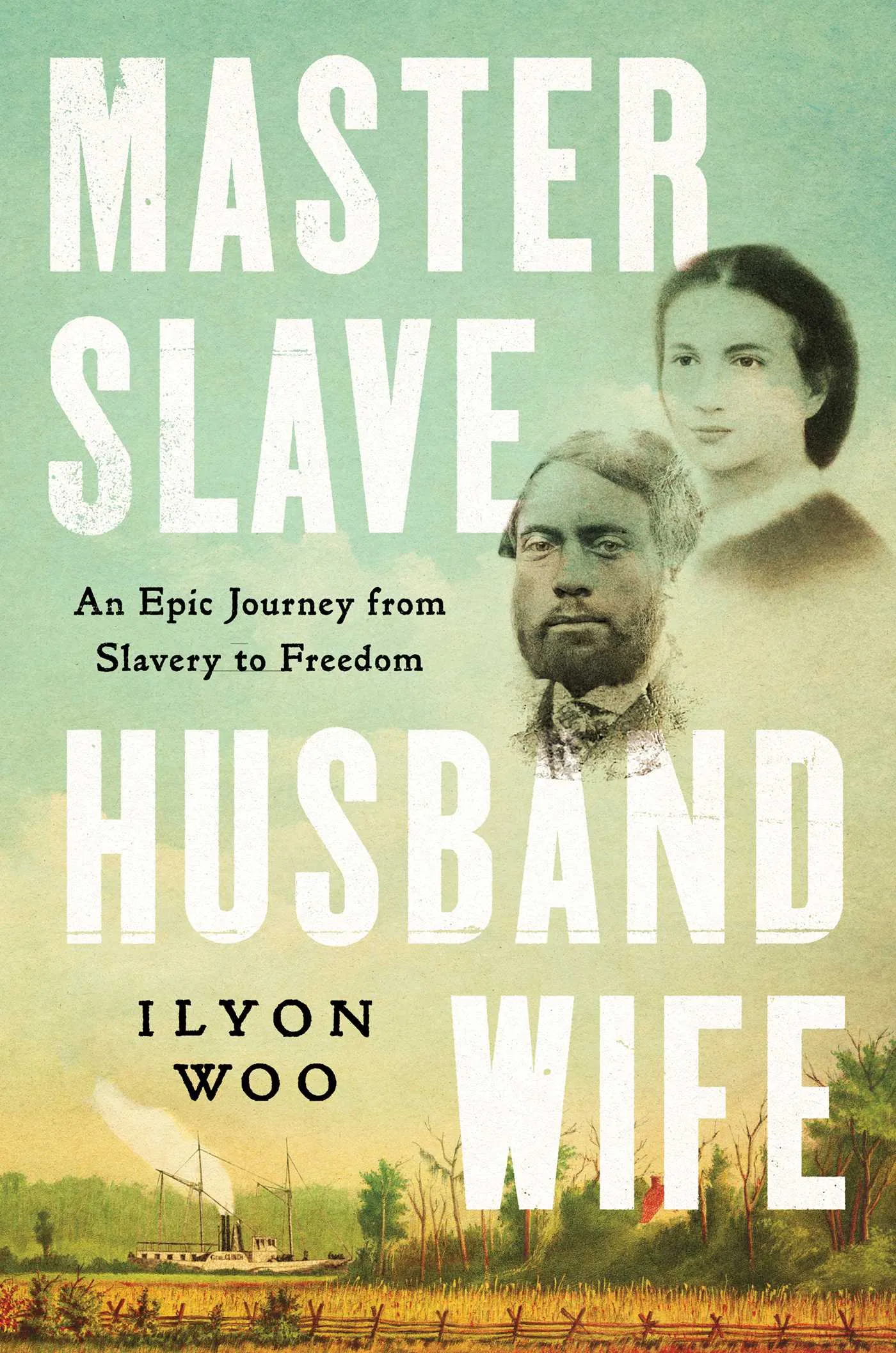
Master Slave Husband Wife: An Epic Journey from Slavery to Freedom by Ilyon Woo
Ellen and William Craft were a Black married couple who freed themselves from slavery in 1848 by disguising themselves as a traveling white man and an enslaved person. Author Ilyon Woo recounts their thousand-mile journey to seek safety in the North and their escape from the United States in the months following the passage of the Fugitive Slave Act.
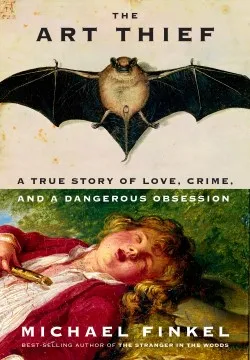
The Art Thief: A True Story of Love, Crime, and a Dangerous Obsession by Michael Finkel
Written over a period of 11 years with exclusive journalistic access to the subject, author Michael Finkel explores the motivations, heists, and repercussions faced by the notorious and prolific art thief Stéphane Breitwieser. Of special focus is his relationship with his girlfriend and accomplice, Anne-Catherine Kleinklaus.

King: A Life by Jonathan Eig
While recently published, King: A Life is already considered to be the most well-researched biography of Civil Rights activist Martin Luther King Jr. published in decades. New York Times bestselling journalist Jonathan Eig explores the life and legacy of Dr. King through thousands of historical records, including recently declassified FBI documents.
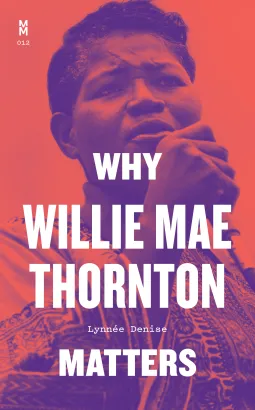
Why Willie Mae Thornton Matters by Lynnée Denise
This biography is part of the Why Music Matters series from the University of Texas. It reflects on the legendary blues singer’s life through an essay collection in which the author (also an accomplished musician) seeks to recreate the feeling of browsing through a box of records.
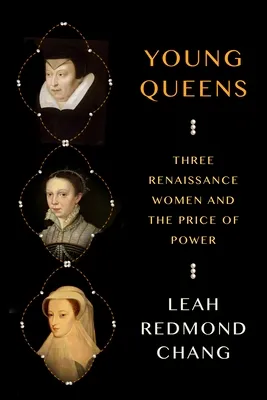
Young Queens: Three Renaissance Women and the Price of Power by Leah Redmond Chang
Historian Leah Redmond Chang’s latest book release focuses on three aristocratic women in Renaissance Europe: Catherine de’ Medici, Elizabeth de Valois, and Mary, Queen of Scots. As a specific focus, she examines the juxtaposition between the immense power they wielded and yet the ways they remained vulnerable to the patriarchal, misogynistic societies in which they existed.
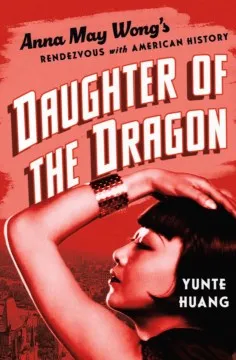
Daughter of the Dragon: Anna May Wong’s Rendezvous with American History by Yunte Huang
Anna May Wong was a 20th-century actress who found great acclaim while still facing discrimination and typecasting as a Chinese woman. University of California professor Yunte Huang explores her life and impact on the American film industry and challenges racist depictions of her in accounts of Hollywood history in this thought-provoking biography.
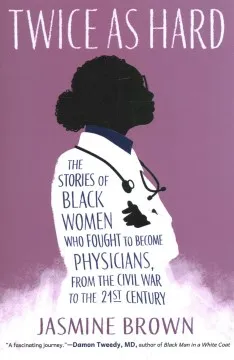
Twice as Hard: The Stories of Black Women Who Fought to Become Physicians, from the Civil War to the 21st Century by Jasmine Brown
Written by Rhodes Scholar and University of Pennsylvania medical student Jasmine Brown, this collective biography shares the experiences and accomplishments of nine Black women physicians in U.S. history — including Rebecca Lee Crumpler, the first Black American woman to earn a medical degree in the 1860s, and Surgeon General Joycelyn Elders.
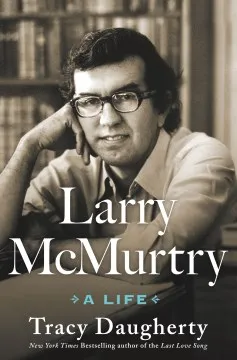
Larry McMurtry: A Life by Tracy Daugherty
Two years after the Pulitzer Prize-winning author’s death, this biography presents a comprehensive history of Larry McMurtry’s life and legacy as one of the most acclaimed Western writers of all time.
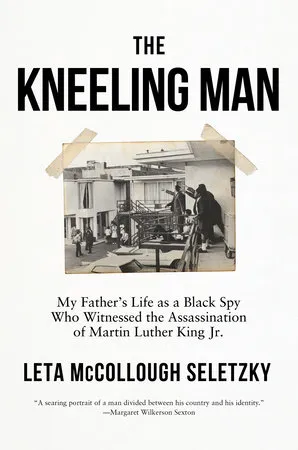
The Kneeling Man: My Father’s Life as a Black Spy Who Witnessed the Assassination of Martin Luther King Jr. by Leta McCollough Seletzky
Journalist Leta McCollough Seletzky examines her father, Marrell “Mac” McCollough’s complicated legacy as a Black undercover cop and later a member of the CIA. In particular, she shares his account as a witness of the assassination of Martin Luther King Jr. at the Lorraine Motel.
Are you a history buff looking for more recommendations? Try these.
- Best History Books by Era
- Books for a More Inclusive Look at American History
- Fascinating Food History Books
You Might Also Like

The Best Books of 2023
A Smithsonian magazine special report
The Ten Best History Books of 2023
Our favorite titles of the year resurrect forgotten histories and illuminate how the United States ended up where it is today
/https://tf-cmsv2-smithsonianmag-media.s3.amazonaws.com/accounts/headshot/mellon.png)
Meilan Solly
Senior Associate Digital Editor, History
:focal(800x602:801x603)/https://tf-cmsv2-smithsonianmag-media.s3.amazonaws.com/filer_public/83/92/83928011-d1c8-4559-8916-da5ee9174bc5/booklist-2023-history.jpg)
For many, 2023 was a year of momentous change and loss, marked by events that will be chronicled in history books for generations to come. Longstanding tensions in the Middle East erupted when Hamas invaded Israel on October 7 and have continued to reverberate through the Israeli counterattack and humanitarian crisis in Gaza. To the north, the Russia-Ukraine war entered its second year, continuing a conflict that shows few signs of slowing.
In the United States, book bans in public schools and libraries spoke to the growing debate over how history—especially the nation’s long history of racial inequality —is taught. The conversation reflects not only broader divisions in an increasingly polarized country, but also a push to redefine the very nature of the discipline. “Most of our prior arguments were about who to include in the story, not the story itself,” Jonathan Zimmerman , an education historian at the University of Pennsylvania, told the Washington Post earlier this year. “America has lost a shared national narrative.”
This year, the ten history books we’ve chosen to highlight served a dual purpose. Some offered a respite from reality, transporting readers to places like ancient Rome and Tudor England. Others reflected on the fraught nature of the current moment, detailing how the nation’s past—including white supremacist violence during Reconstruction and the history of restrictions on women’s reproductive rights—informs its present and future. From a biography of Martin Luther King Jr. to the story of a deadly shipwreck, these are some of Smithsonian magazine’s favorite history books of 2023.
The Wager: A Tale of Shipwreck, Mutiny and Murde r by David Grann
David Grann ’s newest page-turner, The Wager , has much in common with his 2017 book, Killers of the Flower Moon , which was recently adapted for the screen by Martin Scorsese. Both tell the tale of a once-infamous, now more obscure chapter in history, resurrected through meticulous research and a gift for immensely readable prose. Just as the Reign of Terror , a string of murders that struck the Osage Nation in the early 20th century, was more widespread than an FBI investigation suggested, the circumstances surrounding the 1741 wreck of the HMS Wager were more mysterious than survivors initially claimed.
A Royal Navy ship that set sail from England in 1740, its crew tasked with pursuing an enemy galleon during a war with Spain, the Wager ran aground off the coast of Patagonia in 1741. A few years after the shipwreck, two sets of sailors returned home, each with their own competing version of events—one a story of survival under horrific conditions and the other a harrowing account of mutiny, a crime then punishable by death.
To untangle this web of contradictions, Grann, a longtime staff writer at the New Yorker , “spent years combing through the archival debris: the washed-out logbooks, the moldering correspondence, the half-truthful journals, the surviving records from the troubling court-martial,” as he explains in an author’s note. Grann frames his tale as a mystery, though he leaves readers to draw conclusions for themselves; the result is a tour-de-force book that will leave readers satisfied while prompting them to consider larger questions of imperialism and the notion of truth itself.
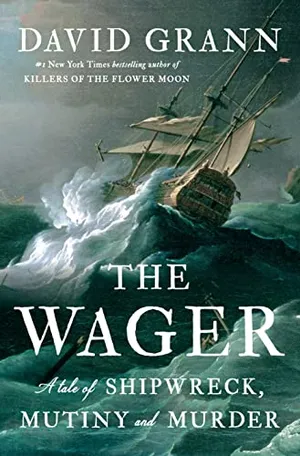
The Wager: A Tale of Shipwreck, Mutiny and Murder
From the author of "Killers of the Flower Moon," a page-turning story of shipwreck, survival and savagery, culminating in a court martial that reveals a shocking truth.
Madame Restell: The Life, Death and Resurrection of Old New York's Most Fabulous, Fearless and Infamous Abortionist by Jennifer Wright
When the Supreme Court overturned Roe v. Wade in June 2022, Jennifer Wright was putting the finishing touches on her latest book, Madame Restell , a biography of the woman she deems “a businesswoman, a scofflaw, an immigrant and an abortionist [who] made men really, really mad.” The timing of the decision wasn’t lost on Wright, a journalist and author of pop-culture history books. It “disabuses us of the notion that we’ve come as long a way in our treatment of women as we liked to imagine we did,” she says in a statement. “A lot of people have talked about how we went back 50 years with the Dobbs ruling. I would say we went back 150,” to the 1870s.
By that decade, Restell had been offering abortions for more than 30 years. Born Ann Trow in England in 1811, she immigrated to the U.S. with her husband and daughter in 1831, only to find herself a widowed single mother just two years later. By a stroke of luck, she formed a connection with a neighbor who taught her how to compound pills and likely showed her how to provide surgical abortions when the abortifacient drugs she gave patients failed. With the help of her brother and her second husband, Trow developed a new persona, Restell, and started advertising her “celebrated preventative powders for married ladies whose health prevents too rapid an increase of family.” This straightforward acknowledgement of the nature of Restell’s services—risky at a time when abortion was a criminal offense in New York—attracted both satisfied customers and powerful enemies, among them the anti-vice activist Anthony Comstock , who would eventually bring about the abortionist’s downfall.
This biography presents a searing portrait of an indomitable woman, examining the experiences that shaped Restell’s career choice and the challenges she overcame, including multiple arrests and a stint in prison. Wright juxtaposes her subject’s story with those of Restell’s patients and an overview of the broader conversation surrounding abortion in the late 19th century.
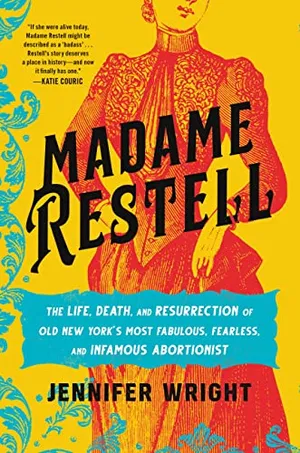
Madame Restell: The Life, Death and Resurrection of Old New York's Most Fabulous, Fearless and Infamous Abortionist
Madame Restell was a self-taught surgeon in pre-Gilded Age New York, and her bustling “boarding house” provided birth control, abortions and medical assistance to thousands of women—rich and poor alike.
Anne Boleyn & Elizabeth I: The Mother and Daughter Who Forever Changed British History by Tracy Borman
Tracy Borman is a prolific chronicler of Tudor England, with each of her books offering a novel take on the world’s most-discussed dynasty. In recent years, she’s examined the male influences in Henry VIII’s life and the private lives of the Tudors, from their romps in the bedroom to their bathroom habits. Now, Borman—an author who serves as joint chief curator of England’s Historic Royal Palaces—has turned her attention to the relationship between Anne Boleyn and Elizabeth I, a mother and daughter who she says “changed the course of British history.”
Anne was Henry’s second wife, a strong-willed, worldly woman whose refusal to become the king’s mistress pushed him to break with Rome and launch the English Reformation . Her time on the throne was brief, ending with her execution in 1536, but she left behind a daughter, the future Elizabeth I. Popular lore suggests Elizabeth, who was just 2 years old when her mother was beheaded, rarely acknowledged Anne, whose existence was all but erased by Henry after her death. When Elizabeth took the throne in 1558, she didn’t actively attempt to restore Anne’s reputation by overturning the annulment of her marriage or moving her body from a chapel at the Tower of London.
“The obvious conclusion is that Elizabeth was at best indifferent toward, and at worst ashamed of, Anne,” writes Borman. “But the truth is both more complex and more fascinating. Exploring Elizabeth’s actions both before and after she became queen reveals so much more than her words.” Evidence laid out in the book points to Elizabeth’s enduring love for Anne, whose push for religious reform reached new heights during her daughter’s reign. Borman suggests Elizabeth fulfilled a request made by Anne on the scaffold: “If any person will meddle of my cause, I require them to judge the best.”
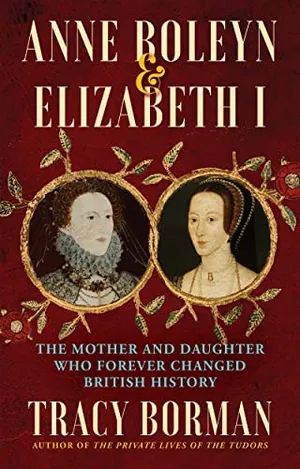
Anne Boleyn & Elizabeth I: The Mother and Daughter Who Forever Changed British History
Anne Boleyn may be best known for losing her head, but as Tudor expert Tracy Borman reveals in a book that recasts British history, her greatest legacy lies in the path-breaking reign of her daughter, Elizabeth.
King: A Life by Jonathan Eig
In his biography of civil rights icon Martin Luther King Jr., Jonathan Eig follows the winning formula laid out in his 2017 book , Ali: A Life , using an impressively researched deep dive to present a more nuanced portrait. “In the process of canonizing King,” Eig writes, “we’ve defanged him, replacing his complicated politics and philosophy with catchphrases that suit one ideology or another.”
Eig argues that contemporary observers have “mistaken King’s nonviolence for passivity” and “failed to recall that [he] was one of the most brutally divisive figures in American history.” Though he’s lionized today, King was widely disliked at the time of his assassination in 1968, attracting the disapproval of Southern segregationists, the government, militant Black activists and white liberals alike. Some thought he’d gone too far in his calls for equality; others said he hadn’t gone far enough. By reframing King’s life in a more realistic light, Eig seeks to “recover the real man from the gray mist of hagiography,” showing his strengths, like the power of his speeches, and his weaknesses, from his numerous affairs to his penchant for committing plagiarism .
A magisterial addition to the literature on King, Eig’s book is a clear-eyed, sympathetic tribute to a man who reshaped America in just 13 years, bringing “the nation closer than it had ever been to reckoning with the reality of having treated people as property and secondary citizens,” as the author writes. Based on newly declassified FBI papers, more than 200 interviews and a trove of previously unpublished archival materials, King: A Life is poised to replace David J. Garrow’s Pulitzer Prize -winning 1986 book, Bearing the Cross , as the standard biography of the activist. Garrow acknowledges as much in a review for the Spectator , praising Eig’s work as “the best-informed account of this deeply courageous, yet also deeply flawed, life.”
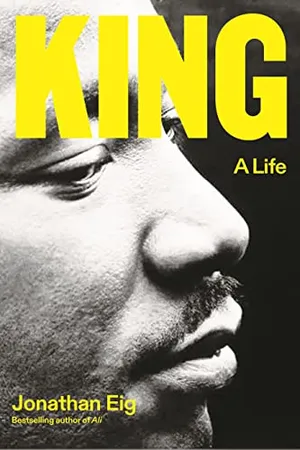
King: A Life
Vividly written and exhaustively researched, Jonathan Eig’s "King: A Life" is the first major biography in decades of the civil rights icon Martin Luther King Jr.―and the first to include recently declassified FBI files.
The Sisterhood: The Secret History of Women at the CIA by Liza Mundy
Liza Mundy ’s newest is a worthy successor to her 2017 best seller, Code Girls , which explored the stories of the unheralded American women who served as code breakers during World War II. The Sisterhood offers a comprehensive exploration of a similarly understudied topic: women at the CIA. Though women have worked at the agency since its founding in 1947, Mundy, a journalist and former Washington Post staffer, argues that their contributions have long been overlooked, in part due to the secretive nature of the job but also because of sexism.
From Jeanne Vertefeuille , a typist-turned-investigator who exposed the most damaging mole in CIA history, to Heidi August , who witnessed the 1969 coup in Libya and the Cambodian Civil War firsthand, The Sisterhood shows how “women made contributions not despite their gender but because of it, using their sex to move around the world unremarked,” as Mundy writes in an author’s note. Beyond the women who worked at the CIA, the book profiles individuals on the periphery of the organization, like Shirley Sulick , the Black wife of a white agent, who enjoyed surveilling KGB operatives during trips to the store and making dead drops by pretending to pick up items that had fallen out of her purse.
Based on more than 100 interviews, published histories, academic articles, declassified documents and personal writings, The Sisterhood is a deeply researched, exhaustive read spanning seven decades of CIA history. “Women were behind numerous intelligence ‘wins’ that have never seen the light of day, and [they] made points, papers and predictions that more attention should have been paid to,” Mundy writes. At the same time, the journalist acknowledges the harm women have done as participants “in some of the agency’s darkest, most controversial chapters.”
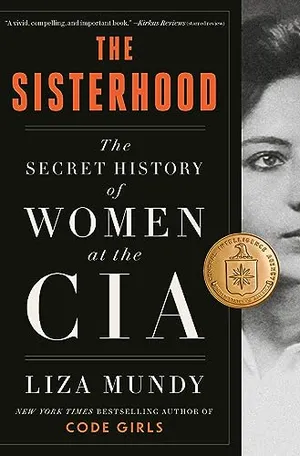
The Sisterhood: The Secret History of Women at the CIA
The acclaimed author of “Code Girls” returns with a history of three generations at the CIA, “electric with revelations” about the women who fought to become operatives, transformed spycraft and tracked down Osama bin Laden.
Master Slave Husband Wife: An Epic Journey From Slavery to Freedom by Ilyon Woo
The story of Ellen and William Craft , a couple who escaped slavery in 1848 by disguising themselves as an ailing white planter and his enslaved attendant, has received renewed attention in recent years, inspiring a short film , a children’s book and several academic studies . But it’s Ilyon Woo ’s biography of the Crafts, Master Slave Husband Wife , that’s poised to become the authoritative account of their journey to freedom.
Born to a white planter and an enslaved woman, Ellen fell in love with William, an enslaved cabinetmaker, while working in the Georgia home of her white half-sister. The couple hatched an escape plan, taking advantage of Ellen’s white-passing appearance to transform themselves into an unassuming duo: a master and his servant. Ellen dressed as a man, wore a sling on her arm to avoid being asked to write, applied poultices to her neck to indicate she had trouble speaking and wore hand-sewn clothing that spoke to her supposed high status. Traveling via train and steamship, the Crafts reached the free state of Pennsylvania on Christmas Day, after several close calls. They briefly found fame on the abolitionist speaking circuit, but following the passage of the Fugitive Slave Act of 1850, they fled to the United Kingdom. While living abroad, they wrote a book about their escape, though Woo points out that William downplayed Ellen’s role, claiming sole authorship of the text and referring to her only as his wife.
Master Slave Husband Wife is meticulously sourced, with “every description, quotation and line of dialogue” coming from historical materials, according to Woo. Yet the author’s prose is novelistic, immersing readers in the escape through descriptions of the “gentleman’s drawers” Ellen wore as part of her disguise and the tools of torture that awaited enslaved people at the Sugar House in Charleston, South Carolina, where the couple stopped on their way to Philadelphia. The dangerous voyage was “very cinematic,” Woo tells NPR . “Whenever I got stuck in trying to figure out how to tell this story, I sort of tried to picture: where would the camera move, and which camerapeople am I going to use in terms of the angles that I’ll get into the story?”
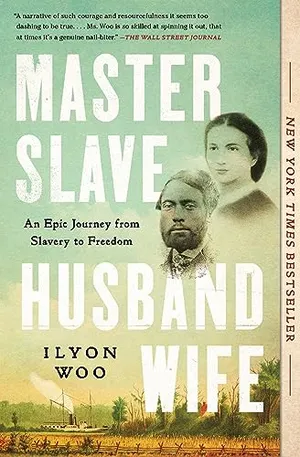
Master Slave Husband Wife: An Epic Journey from Slavery to Freedom
The remarkable true story of Ellen and William Craft, who escaped slavery through daring, determination and disguise, with Ellen passing as a wealthy, disabled white man and William posing as "his" enslaved servant.
I Saw Death Coming: A History of Terror and Survival in the War Against Reconstruction by Kidada E. Williams
Reconstruction , the government-sanctioned push to reunite the nation in the aftermath of the Civil War, is often deemed a failure by historians . The federal government gave Southerners significant freedom to choose how they wanted to rebuild; rebellious states responded by passing laws that limited the rights of Black Americans and establishing white supremacist groups like the Ku Klux Klan. Given the systematic nature of this campaign against Black Americans, historian Kidada E. Williams believes that classifying Reconstruction as a failure is an oversimplification. “Black Reconstruction didn’t ‘fail,’ as so many are taught,” she writes in I Saw Death Coming . “White Southerners overthrew it, and the rest of the nation let them.”
Williams’ painstakingly researched book centers firsthand testimony from Black Americans, as recorded in transcripts from a congressional investigation into the KKK; affidavits provided to the Freedmen’s Bureau; interviews given to the Works Progress Administration in the 1930s; newspaper articles; and personal papers. Though these sources have long been available to historians, Williams approached them from a new perspective, focusing on “African Americans’ efforts to articulate what their families had gained with Reconstruction (what they had achieved with freedom and the expansion of democracy) and what they had lost and were losing to racist violence,” as she tells the Detroit Free Press .
I Saw Death Coming is a timely, incisive read at a time when white nationalism is on the rise , even as many Americans take steps to confront systemic racism in the U.S. Instead of attributing Reconstruction-era violence to “pockets of white resistance,” Williams suggests that “a kind of crypto-Confederacy emerged from the collective rage of a fallen white South that refused to cede an inch to those they had subjugated,” notes the Los Angeles Times in a review. “White Southerners did not seek to completely exterminate all African Americans,” Williams argues, “but the successive violence they used, rejecting newly freed people’s right to any rights, was genocidal-like in nature.”
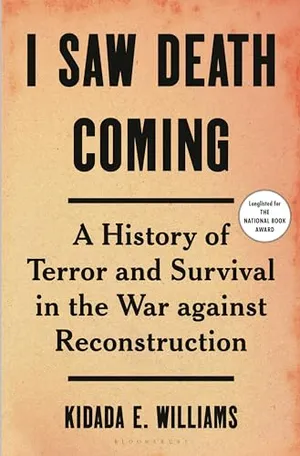
I Saw Death Coming: A History of Terror and Survival in the War Against Reconstruction
From a groundbreaking scholar, a heart-wrenching re-examination of the struggle for survival in the Reconstruction-era South and what it cost.
The World: A Family History of Humanity by Simon Sebag Montefiore
“The family,” writes Simon Sebag Montefiore in The World , “remains the essential unit of human existence.” From the Egyptian king Khufu and his mother to the “conquering family” of Genghis Khan, the Habsburg and Romanov dynasties, and the Roosevelts, Montefiore’s sweeping history traces the trajectory of the world through the relatives who ruled over it. Some of his subjects are household names, but many others are lesser known to many readers in the U.S., among them Jacques I of Haiti, the Mughal Emperor Babur and Chinese Empress Wu.
The historian’s sweeping exploration captures the complicated nature of family dynamics, particularly when politics is involved. He details acts of violence against relatives, including Ptolemy IV’s dismemberment of his son and Kim Jong-un’s likely murder of his brother; battles over succession rights among heirs; political marriages in which parents sent their daughters “to marry strangers in faraway lands where they then die[d] in childbirth”; and (comparatively rare) heartwarming moments between loved ones. The portrait that emerges is one of dysfunction , with the pitfalls of hereditary power, whether formalized or embodied by political dynasties like the Kennedys, readily apparent.
Packed with memorable anecdotes and lurid details, The World focuses less on how family units have evolved over time than on the stories of families throughout history. This approach succeeds in large part because of the encyclopedic depth of Montefiore’s research evident throughout the book’s 23 chapters and 1,344 pages. “In every family drama, there are many acts,” the historian writes. “That is what Samuel Johnson meant when he said every kingdom is a family and every family a little kingdom.”
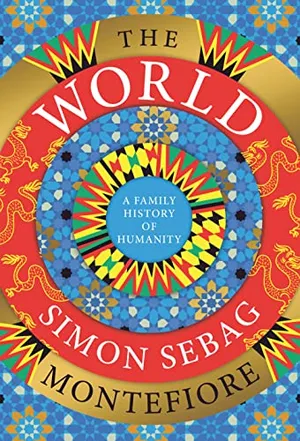
The World: A Family History of Humanity
A magisterial world history unlike any other that tells the story of humanity through the one thing we all have in common: families.
On Savage Shores: How Indigenous Americans Discovered Europe by Caroline Dodds Pennock
Books about the Age of Exploration tend to focus on the Europeans who journeyed to the Americas in the 15th and 16th centuries. Historian Caroline Dodds Pennock opted for a different approach, reversing focus to discuss the tens of thousands of Indigenous Americans who traveled to Europe between 1492, when Christopher Columbus supposedly “discovered” the New World, and 1607, when the colony of Jamestown was founded.
“These overlooked multitudes of Indigenous travelers—nobles, diplomats, servants, translators, families, entertainers, enslaved people—overturn our understandings of early modern exploration and empire,” writes Pennock in On Savage Shores . “And the vast network of global connections they inhabited … sowed the seeds of our cosmopolitan modern world more than a century before” the Mayflower landed in Massachusetts in 1620.
Pennock’s book draws on archival records to tell the stories of a diverse group of Indigenous people, including Martín Cortés , the mixed-race son of conquistador Hernán Cortés, who “lived the life of a young Spanish nobleman, essentially,” as Pennock told Smithsonian earlier this year; Guaibimpará (Catherine du Brasil), a Brazilian woman who settled in France with her husband, a shipwrecked Portuguese sailor, in 1528; and Diego de Torres y Moyachoque, a cacique , or tribal chief, who traveled to Spain on a diplomatic mission in 1575.
Many of Pennock’s subjects are anonymous, their names unrecorded in European sources that offer limited glimpses of their lives. But the historian deftly navigates these gaps in the archives, interrogating the colonialist bias of the records available to present a fuller portrait of cultural exchange at a pivotal moment in world history. As historian David Olusoga puts it in a review for the Guardian , On Savage Shores is a “work of historical recovery.”
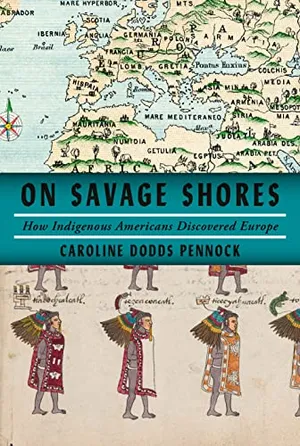
On Savage Shores: How Indigenous Americans Discovered Europe
A landmark work of narrative history that shatters our previous Eurocentric understanding of the Age of Discovery by telling the story of the Indigenous Americans who journeyed across the Atlantic to Europe after 1492.
Emperor of Rome: Ruling the Ancient Roman World by Mary Beard
Classicist Mary Beard follows up her epic 2015 history of ancient Rome, SPQR , with a more intimate discussion of the empire’s rulers. As Beard writes in the book’s introduction, Emperor of Rome “explores the fact and fiction, … asking what [rulers] did, why they did it and why their stories have been told in the extravagant, sometimes lurid, ways that they have.” In addition to addressing “power, corruption and conspiracy,” the book asks what these individuals’ everyday lives were like, from what and where they ate to whom they slept with and how they traveled.
Beard begins her narrative with Elagabalus , a Syrian teenager who took the throne at age 14 and was murdered just four years later, in 222 C.E. The emperor is better known for his banquets than his achievements as a ruler: Ancient chronicles claim he forced guests to sit on whoopee cushions; served fake food crafted from wax or glass; and released tame animals in rooms occupied by hungover attendees, who died of fright upon waking up face to face with a lion, leopard or bear.
As entertaining as these anecdotes are, historians generally agree that they’re grossly exaggerated, concocted by those eager to win the favor of Elagabalus’ successor. Though these stories are unreliable, Beard argues that they open a window into “the anxieties that surrounded imperial rule,” chief among them “the terror of power without limits.” The scholar also uses archaeological evidence to examine the veracity of ancient accounts; as she points out, the limited nature of cooking facilities at Hadrian’s Tivoli villa contradicts the suggestion that feasts featuring peacock brains and flamingo tongues were regular occurrences there.
The biggest question posed by Emperor of Rome is why some rulers are considered good and others bad. The answer, according to Beard, comes down to succession . Roman emperors didn’t simply pass on the throne to their eldest son, as generations of European rulers would later do. Instead, they designated a successor, who could be a relative but was often not. Whether this individual ultimately claimed the title—and what happened when emperors failed to name an heir—was an entirely different issue, and “the transition of power was almost always debated, fraught and sometimes killed for,” writes Beard. “Once the old ruler was dead, it was others who could turn, or refuse to turn, the implied promises of succession into reality.”
The emperors deemed successful, the classicist concludes, were the ones succeeded by their chosen successor, who was “almost bound to invest heavily in honoring the man who had put him there, and on whom his right to rule depended.”
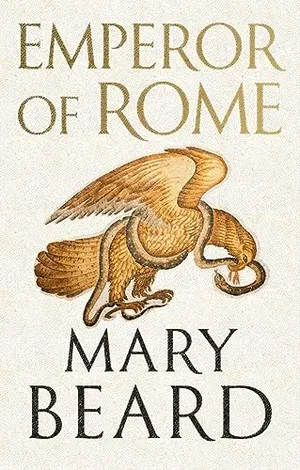
Emperor of Rome: Ruling the Ancient Roman World
"Emperor of Rome" goes directly to the heart of Roman fantasies (and our own) about what it was to be Roman at its richest, most luxurious, most extreme, most powerful and most deadly, offering an account of Roman history as it has never been presented before.
Get the latest History stories in your inbox?
Click to visit our Privacy Statement .
A Note to our Readers Smithsonian magazine participates in affiliate link advertising programs. If you purchase an item through these links, we receive a commission.
/https://tf-cmsv2-smithsonianmag-media.s3.amazonaws.com/accounts/headshot/mellon.png)
Meilan Solly | | READ MORE
Meilan Solly is Smithsonian magazine's senior associate digital editor, history.
- ADMIN AREA MY BOOKSHELF MY DASHBOARD MY PROFILE SIGN OUT SIGN IN
Best Biographies of 2023
MAY 16, 2023
by Jonathan Eig
An extraordinary achievement and an essential life of the iconic warrior for social justice. Full review >

SEPT. 12, 2023
by Tracy Daugherty
A definitive life of the novelist/bookseller/scriptwriter/curmudgeon of interest to any McMurtry fan. Full review >

APRIL 11, 2023
by Robert Greenfield
A masterful look at the wild life of an enigmatic artist that shows how captivating the truth can be. Full review >

AUG. 15, 2023
by Patti Hartigan
An authoritative portrait of a defiant champion of Black theater. Full review >

OCT. 3, 2023
by Will Hermes
An engrossing, fully dimensional portrait of an influential yet elusive performer. Full review >

by Walter Isaacson
Alternately admiring and critical, unvarnished, and a closely detailed account of a troubled innovator. Full review >

by Sally H. Jacobs
An essential book about an incomparably authentic American pioneer and the times in which she lived. Full review >

APRIL 4, 2023
by Robert "Mack" McCormick ; edited by John W. Troutman
A worthwhile investigation into a true legend of the blues. Full review >

MAY 2, 2023
by Jonny Steinberg
A magnificent portrait of two people joined in the throes of making South African history. Full review >

DEC. 5, 2023
by Judith Tick
As masterful and wonderful as its subject. Full review >

OCT. 31, 2023
by Ronald C. White
A revealing portrait of an American hero who deserves even wider recognition. Full review >
More Book Lists

Recent News & Features

- Book to Screen

- In the News

- Seen & Heard
- The 2024 Kirkus Prize Finalists
- 20 Best Books To Read in September
- 21 Best September Books for Young Readers
- 150 Most Anticipated Books of the Fall
- Episode 387: Gayle Forman
- Episode 386: Chris La Tray
- Episode 385: Caro De Robertis
- Episode 384: Best August Books With Abi Daré

The Magazine: Kirkus Reviews
Featuring 332 industry-first reviews of fiction, nonfiction, children’s, and YA books; also in this issue: our annual Fall Preview, with a first look at the season’s most anticipated titles, author interviews, and much more
The Kirkus Star
One of the most coveted designations in the book industry, the Kirkus Star marks books of exceptional merit.
The Kirkus Prize
The Kirkus Prize is among the richest literary awards in America, awarding $50,000 in three categories annually.
Great Books & News Curated For You
Be the first to read books news and see reviews, news and features in Kirkus Reviews . Get awesome content delivered to your inbox every week.
- Discover Books Fiction Thriller & Suspense Mystery & Detective Romance Science Fiction & Fantasy Nonfiction Biography & Memoir Teens & Young Adult Children's
- News & Features Bestsellers Book Lists Profiles Perspectives Awards Seen & Heard Book to Screen Kirkus TV videos In the News
- Kirkus Prize Winners & Finalists About the Kirkus Prize Kirkus Prize Judges
- Magazine Current Issue All Issues Manage My Subscription Subscribe
- Writers’ Center Hire a Professional Book Editor Get Your Book Reviewed Advertise Your Book Launch a Pro Connect Author Page Learn About The Book Industry
- More Kirkus Diversity Collections Kirkus Pro Connect My Account/Login
- About Kirkus History Our Team Contest FAQ Press Center Info For Publishers
- Privacy Policy
- Terms & Conditions
- Reprints, Permission & Excerpting Policy
© Copyright 2024 Kirkus Media LLC. All Rights Reserved.
Popular in this Genre
Hey there, book lover.
We’re glad you found a book that interests you!
Please select an existing bookshelf
Create a new bookshelf.
We can’t wait for you to join Kirkus!
Please sign up to continue.
It’s free and takes less than 10 seconds!
Already have an account? Log in.
Trouble signing in? Retrieve credentials.
Almost there!
- Industry Professional
Welcome Back!
Sign in using your Kirkus account
Contact us: 1-800-316-9361 or email [email protected].
Don’t fret. We’ll find you.
Magazine Subscribers ( How to Find Your Reader Number )
If You’ve Purchased Author Services
Don’t have an account yet? Sign Up.
- Post author: Archie Black
- Post published: December 28, 2023
- Post category: News / Recommendations

2023 was a huge year for new biographies. With newly published works from some of the most well-known biographers, and some not-so-well-known biographers finding their way onto our curated list of 10 Best Biographies Released in 2023.
This page contains affiliate links. If you make a purchase using links on this page, we may earn a commission.
In published order here are the 10 best biographies released in 2023
Master slave husband wife: an epic journey from slavery to freedom, by ilyon woo.
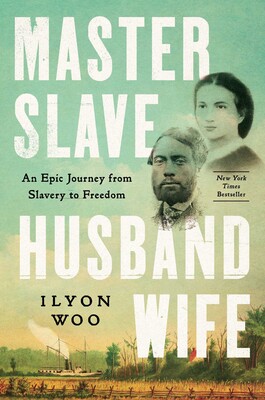
Released on January 17, 2023 by Simon & Schuster
What’s it about
Master Slave Husband Wife by Ilyon Woo chronicles Ellen and William Craft’s daring escape from slavery in 1848, disguised as master and slave, followed by their fight for freedom. The book explores love, courage, anti-slavery activism, and the global struggle for equality, offering a captivating and important piece of American history.
Rough Sleepers, by Tracy Kidder
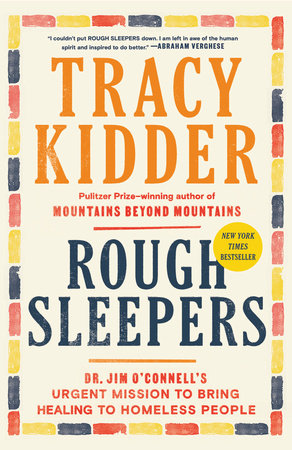
Released on January 17, 2023 by Random House
Rough Sleepers by Tracy Kidder chronicles Dr. Jim O’Connell’s mission to bring medical care to Boston’s homeless population, specifically those enduring the harsh realities of street life. Kidder illuminates the struggles, resilience, and humanity of the homeless. Challenging readers to re-evaluate societal biases and consider the ethical imperative of caring for our most vulnerable members.
The Confidante: The Untold Story of the Woman Who Helped Win WWII and Shape Modern America, by Christopher C. Gorham
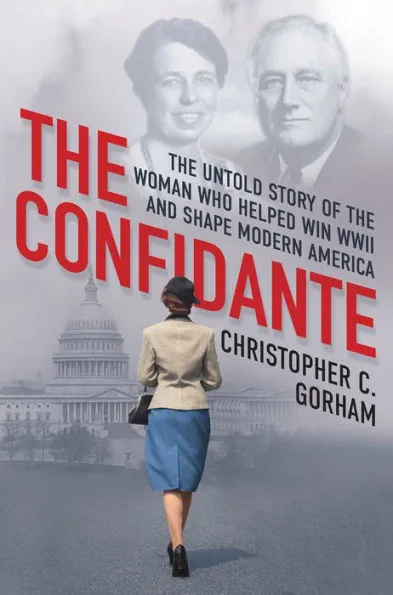
Released on February 21, 2023 by Citadel
The Confidante is a biography that illuminates the extraordinary life of Anna Marie Rosenberg, a Hungarian Jewish immigrant who became FDR’s closest advisor during World War II, shaping critical national policies and leaving an indelible mark on 20th-century America, while exploring the challenges she faced as a woman, immigrant, and Jewish figure in the corridors of power.
King: A Life, by Jonathan Eig
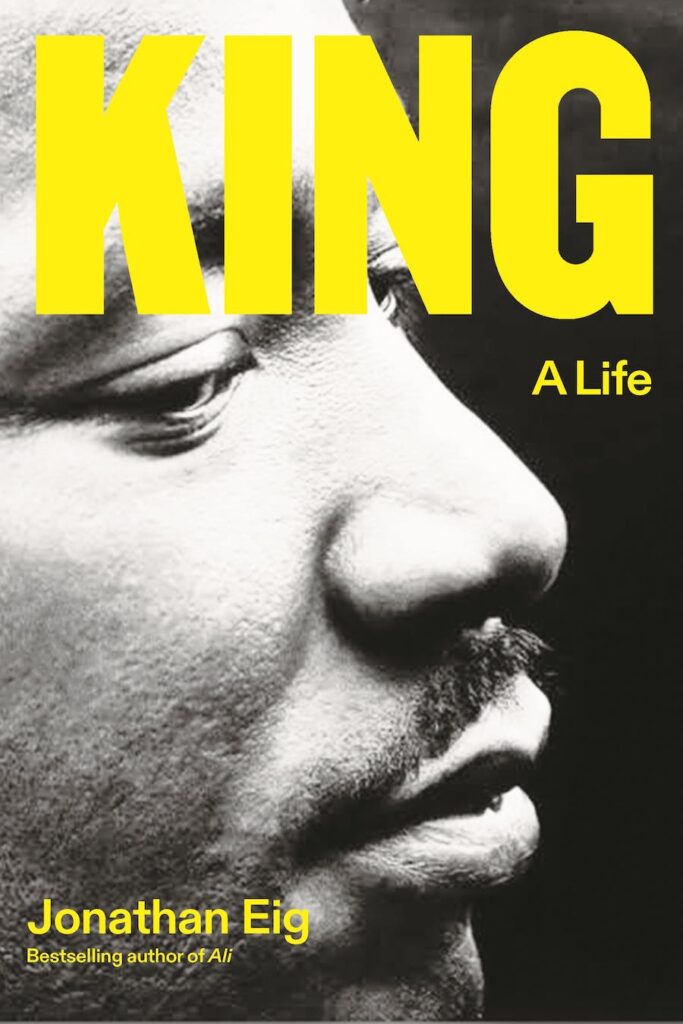
Released on May 16, 2023 by Farrar, Straus and Giroux
Jonathan Eig’s King: A Life is a vivid and meticulously researched biography of Martin Luther King Jr., the iconic civil rights leader. The first major biography in decades, it incorporates recently declassified FBI files. Eig paints an intimate and revealing portrait of the courageous yet emotionally troubled King, shedding light on his complex relationships and personal struggles. From MLK’s family origins to his activism in Birmingham, Selma, and Memphis, the biography captures the journey of a man who reshaped American race relations and emerged as a modern-day founding father and mourned martyr.
The Book of Charlie: Wisdom from the Remarkable American Life of a 109-Year-Old Man, by David von Drehle
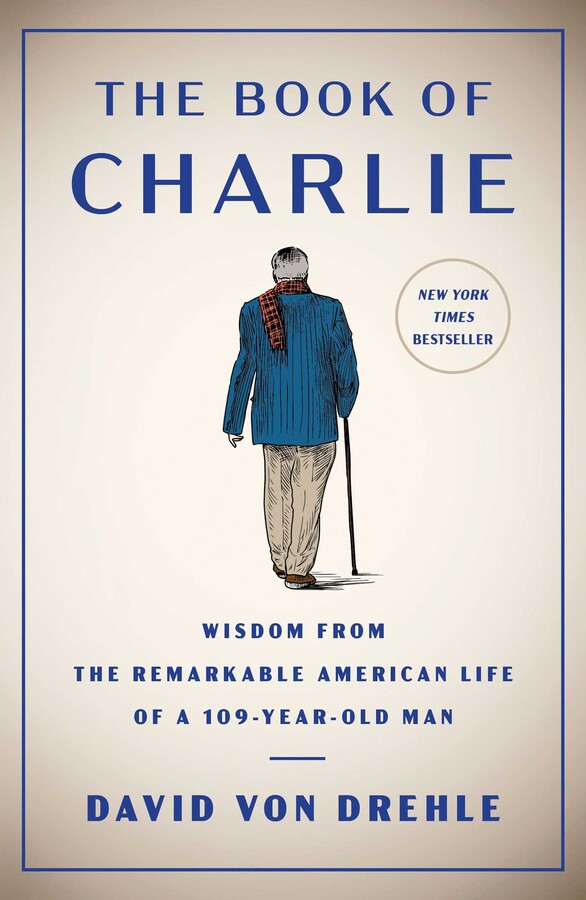
Released on May 23, 2023 by Simon & Schuster
David von Drehle chronicles the extraordinary life of 109-year-old Charlie White, weaving his adventures as a doctor, jazz musician, and world traveler with timeless wisdom on resilience, curiosity, and the power of optimism. Through Charlie’s journey from Midwestern farm boy to centenarian sage, the book offers a heartwarming and inspiring celebration of living life to the fullest, embracing challenges with grit, and always seeking new experiences with wonder and joy.
The Six: The Untold Story of America’s First Women Astronauts, by Loren Grush
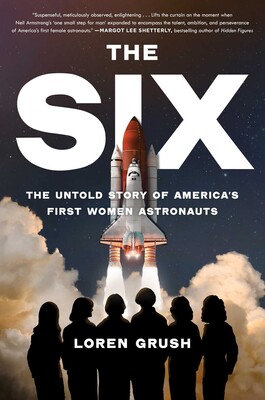
Released on September 12, 2023 by Scribner
In the 1960s, NASA initially excluded women from its astronaut corps but later rectified the decision, selecting six elite women in 1978—Sally Ride, Judy Resnik, Anna Fisher, Kathy Sullivan, Shannon Lucid, and Rhea Seddon. Loren Grush’s “The Six” highlights their struggles with media scrutiny, sexism, and intensive training, showcasing their significant contributions to the space program.
Elon Musk, by Walter Isaacson

Released September 11, 2023 by Simon & Schuster
Elon Musk by Walter Isaacson rockets you into the mind of a visionary entrepreneur, charting his audacious goals from electric cars to Mars, while unmasking the risk-taker, complex man, and his world-altering legacy.
Astor: The Rise and Fall of an American Fortune, by Anderson Cooper, Katherine Howe
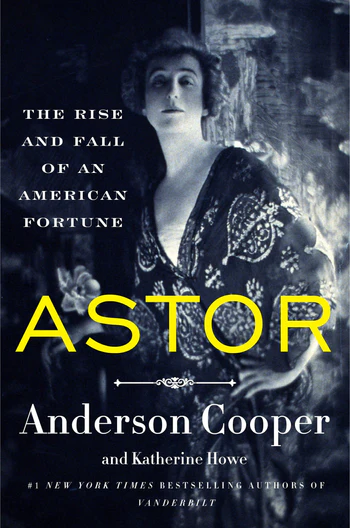
Released on September 19, 2023 by Harper
A compelling tale of ambition, invention, and reinvention spanning from 1783, when German immigrant John Jacob Astor arrived in the U.S., to 2009, marked by Brooke Astor’s son’s conviction for defrauding her; tracing the family’s ascent from a beaver trapping business to Gilded Age prominence, entwined with pivotal moments like the Titanic tragedy, all skillfully chronicled by bestselling authors Anderson Cooper and Katherine Howe in a page-turning historical biography, unveiling the profound impact of the Astor name on American history.
Going Infinite: The Rise and Fall of a New Tycoon, by Michael Lewis
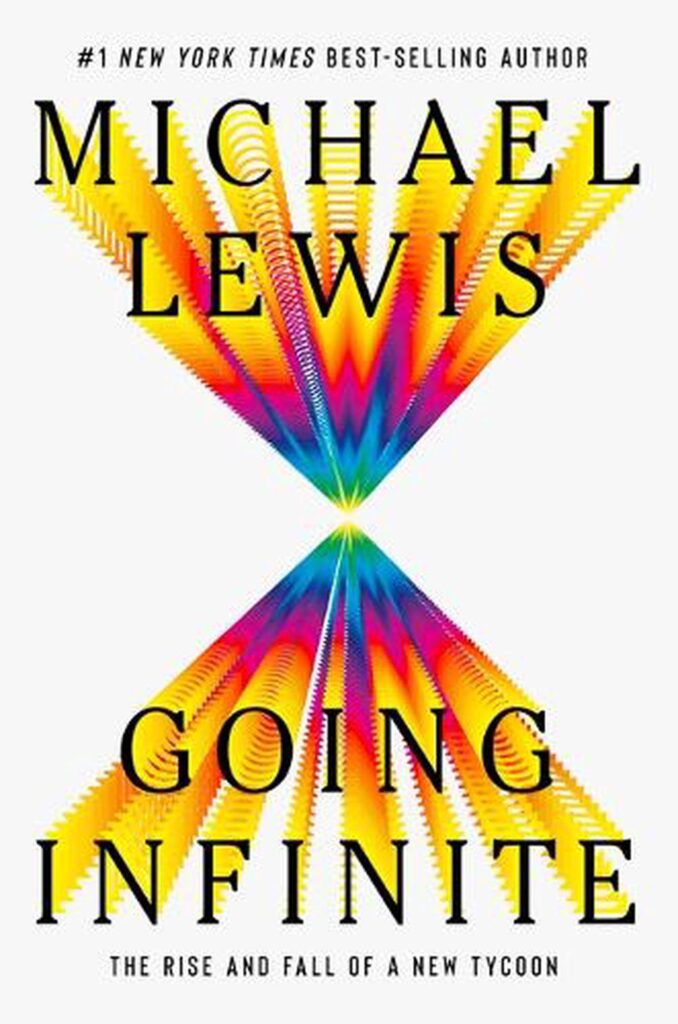
Released on October 3, 2023 by W. W. Norton & Company
In Michael Lewis ‘ Going Infinite , the enigma of Sam Bankman-Fried unfolds – a mathematical prodigy turned crypto-billionaire who built an empire (FTX) on daring bets and altruistic ideals, only to see it crumble under allegations of fraud, hubris, and the murky regulations of the digital frontier. This roller coaster ride delves into the mind of a tech icon, dissecting his unorthodox strategies, the allure of limitless wealth, and the ethical cracks that eventually brought it all crashing down.
The Fund: Ray Dalio, Bridgewater Associates, and the Unraveling of a Wall Street Legend, by Rob Copeland
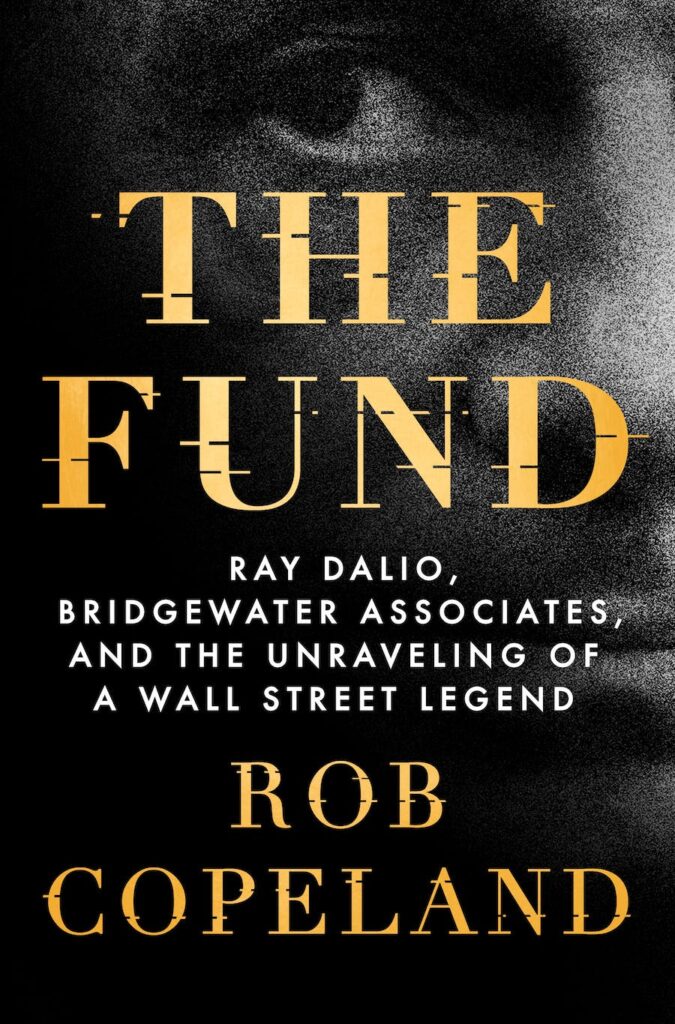
Released November 7, 2023 by St. Martin’s Press
Explore the untold story of Wall Street titan Ray Dalio in The Fund , a gripping exposé by New York Times journalist Rob Copeland. Despite Dalio’s global acclaim, Copeland unveils a darker reality behind the hedge-fund magnate’s cultivated image, revealing the toxicity of his promoted “principles.” Through interviews and captivating anecdotes, the book sheds light on the consequences of Dalio’s “ radical transparency ,” offering a cautionary tale about the intersection of wealth, power, and human nature.
As we wrap up 2023, it’s clear that the year brought a wealth of new biographies. Our curated list, the 10 Best Biographies Released in 2023, features works from both well-known and lesser-known biographers. We hope you find these stories as intriguing and diverse as we did. Cheers to a year of compelling narratives, and here’s to more great reads in the years to come.
Enjoyed this article? Please share it! Share this content
- Opens in a new window
You Might Also Like

7 Best Social History Books
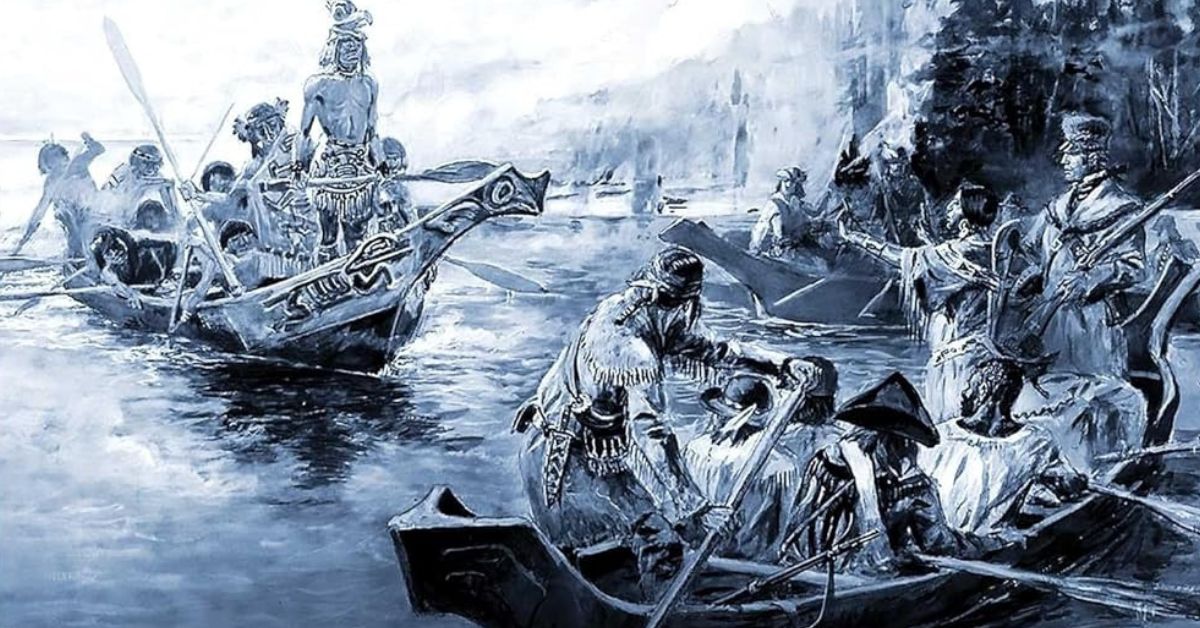
18 Best Nonfiction Adventure Books to Read in 2024
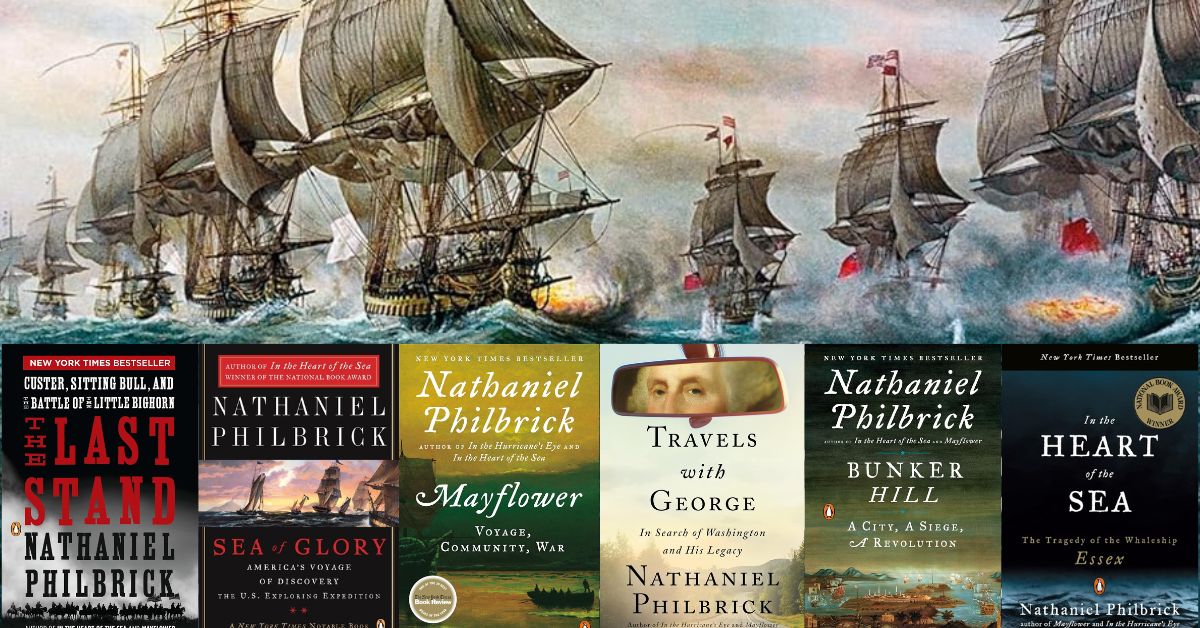
Nathaniel Philbrick’s Best Books Ranked According to Goodreads
Things you buy through our links may earn Vox Media a commission.
The Best Memoirs of 2023
These ten books explore what it means to be a person..
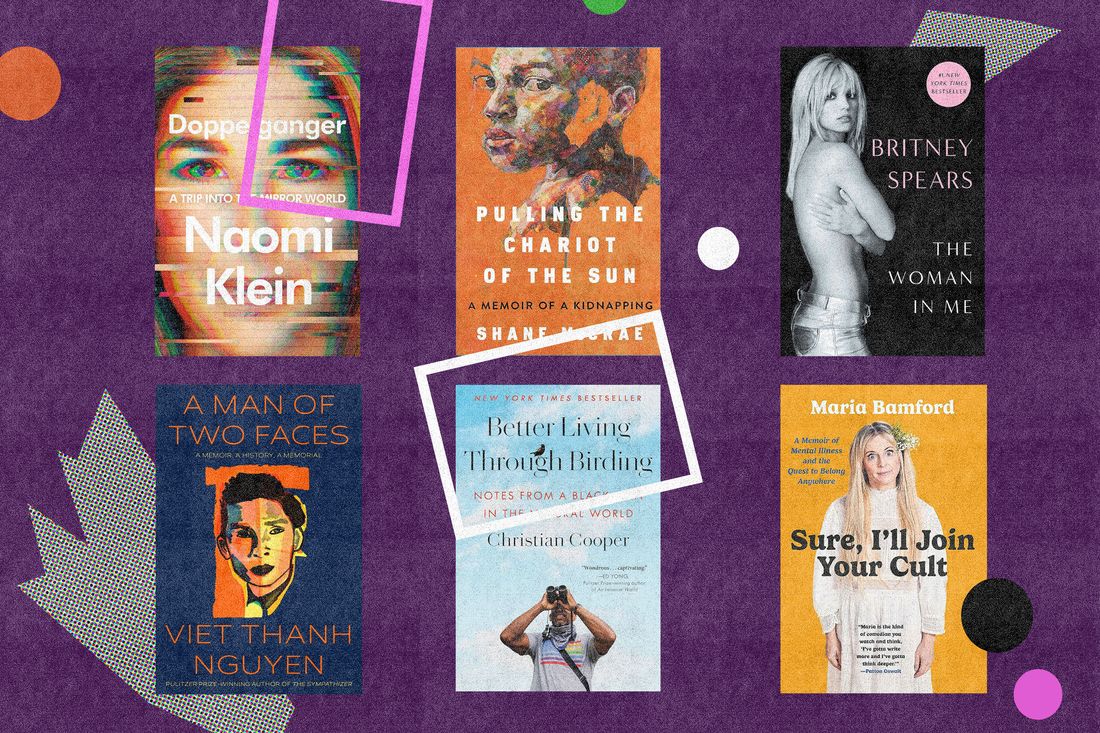
The beauty of memoir is its resistance to confinement: We contain multitudes, so our methods of introspection must, too. This year’s best memoirs perfectly showcase such variety. Some are sparse, slippery — whole lives pieced together through fragmented memories, letters to loved ones, recipes, mythology, scripture. Some tease the boundary between truth and fiction. Others elevate straightforward narratives by incorporating political theory, philosophy, and history. The authors of each understand that one’s life — and more significantly, one’s self — can’t be contained in facts. After all, the facts as we remember them aren’t really facts. It’s their openness and experimentation that allow, at once, intimacy and universality, provoking some of our biggest questions: How does a person become who they are? What makes up an identity? What are the stories we tell ourselves, and why do they matter? These books might not spell out the answers for you, but they’ll certainly push you toward them.
10. Hijab Butch Blues , by Lamya H
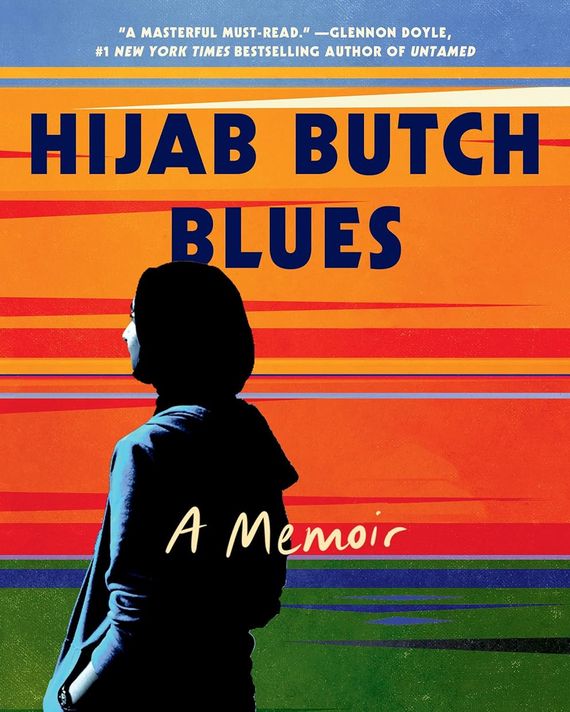
NYC-based organizer Lamya H (a pseudonym) has described her memoir as “unapologetically queer and unapologetically Muslim .” What this looks like is a book that isn’t so much grappling with or reconciling two conflicting identities, but rather lovingly examining the ways each has supported and strengthened the other. Lamya provides close, queer readings of the Quran, drawing connections between its stories and her own experiences of persecution as a brown girl growing up in an (unnamed) Arab country with strict colorist hierarchies. Beginning with her study of the prophet Maryam — whose virgin pregnancy and general rejection of men brings a confused 14-year-old Lamya real relief during Quran class — Lamya draws on various religious figures to track her political, spiritual, and sexual coming of age, jumping back and forth in time as she grows from a struggling child into a vital artist and activist.
9. Better Living Through Birding , by Christian Cooper
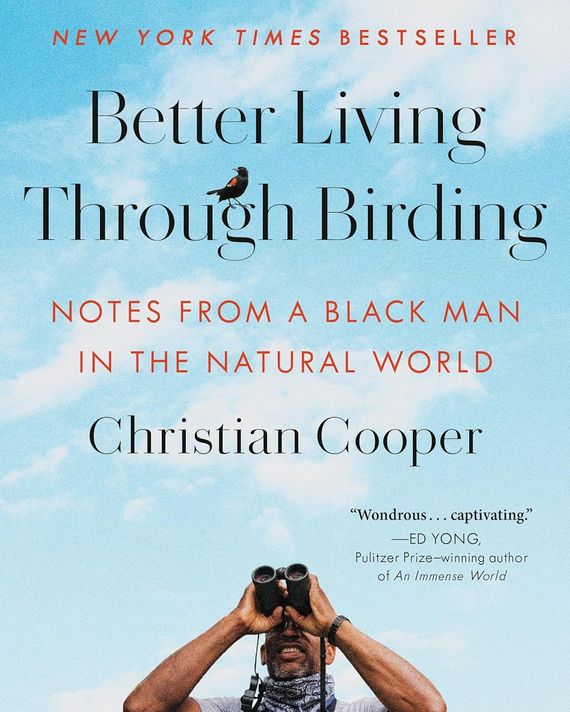
On May 25, 2020, birder Christian Cooper was walking the Central Park Ramble when he asked a white woman on the same path to leash her dog. She refused, he started recording, and after both he and his sister posted the video on social media , the whole world saw her call 911 and falsely claim that an African American man was threatening both her and her dog. Cooper quickly found himself at the center of an urgent conversation about weaponized whiteness and police brutality against Black men in the U.S., amplified by another devastating video circulating that same day: George Floyd’s murder by Minneapolis police. Many will pick up Cooper’s memoir for his account of the interaction that captured international attention and forever changed his life — and it is a powerful, damning examination — but it is far from the main event. By the time it shows up, Cooper has already given us poignant recollections of growing up Black and gay (and in the closet) in 1970s Long Island, a loving analysis of science fiction, a behind-the-scenes look at the comic-book industry as it broke through to the mainstream, and most significantly, an impassioned ode to and accessible education on recreational birding. (The audiobook comes with interstitial birdsong!) Recalling his time at Harvard, Cooper turns repeatedly to his love of his English classes, and this background comes through in his masterful writing. An already prolific writer in the comic-book space, his memoir marks his first (and hopefully not last) foray into the long-form territory.
8. Love and Sex, Death and Money , by McKenzie Wark
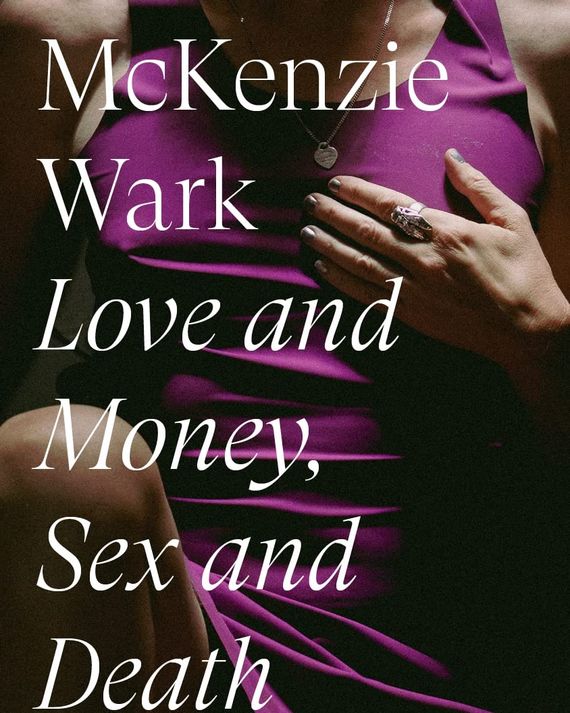
McKenzie Wark is one of the sharpest, most exciting voices writing at the intersections of capitalism, community, gender, and sex — more broadly, everything in this title — and she is also criminally underread. In her epistolary memoir Love and Sex … , she looks at a lifetime of transitions — journeys not only through her gender, but also politics, art, relationships, and aging — and reflects on all the ways she has become the woman she is today, in letters to the people who helped shape her. Wark’s first letter is, fittingly, directed to her younger self. She acknowledges their infinite possible futures and that, in this way, this younger Wark on the brink of independence is the one most responsible for setting her on the path to this specific future. In theory, it’s a letter to offer clarity, even guidance, to this younger self, but really it’s a means of listening to and learning from her. Her letters to mothers, lovers, and others are as much, if not more, about Wark as they are about the recipients, but that self-reflection doubles as a testament to the recipients’ power. What comes across most strongly is Wark’s belief in ongoing evolution and education, and it’s hard not to leave inspired by that possibility.
7. A Man of Two Faces , by Viet Thanh Nguyen
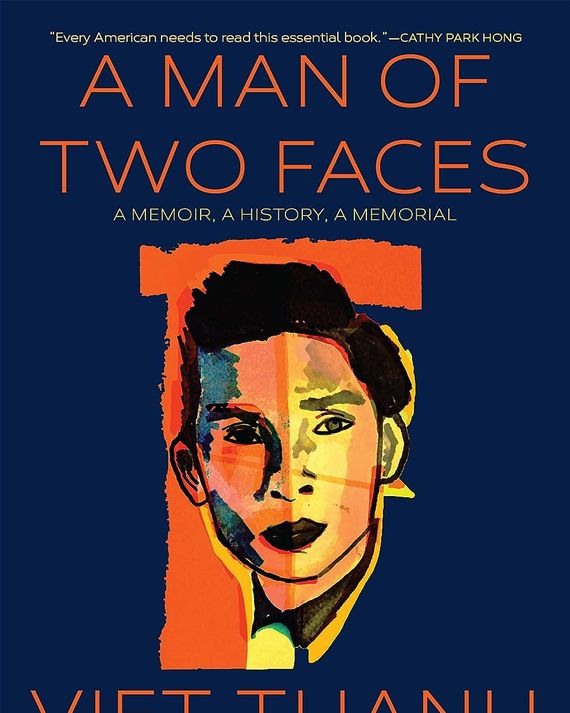
Pulitzer Prize winner Viet Thanh Nguyen’s memoir maintains the singular voice of his fiction: audacious, poetic, self-aware. Written in nonlinear second-person stream of consciousness — its disjointedness represented on the page by paragraphs volleying from left to right alignment across the page — A Man of Two Faces recounts his life as a Vietnamese refugee in the U.S. When his family moves from wartime Vietnam to San Jose, California, 4-year-old Nguyen is placed in a different sponsor home than the rest of his family. The separation is brief, but it sets a tone of alienation that continues throughout his life — both from his parents, who left their home in pursuit of safety but landed in a place with its own brand of violence, and from his new home. As he describes his journey into adulthood and academia, Nguyen incorporates literary and cultural criticism, penetrating analyses of political history and propaganda, and poignant insights about memory and trauma.

6. Sure, I’ll Join Your Cult: A Memoir of Mental Illness and the Quest to Belong Anywhere , by Maria Bamford
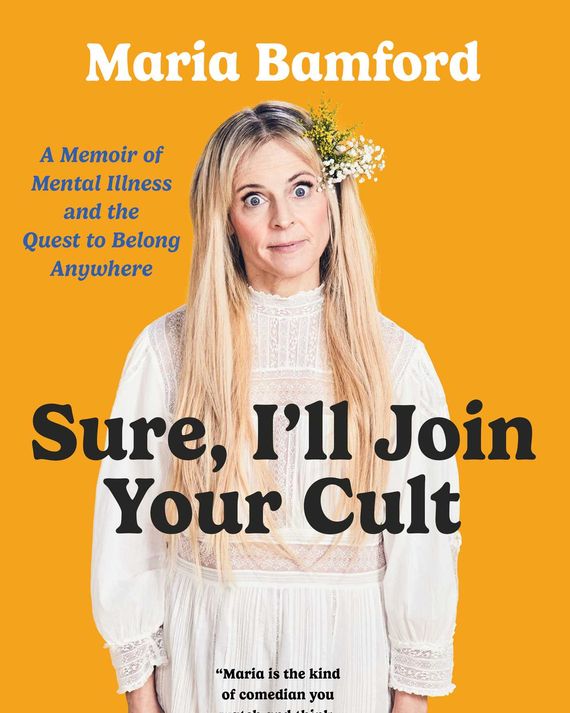
It’s safe to say alt-comedian Maria Bamford’s voice isn’t for everyone. Those who get her anti-stand-up stand-up get it and those who don’t, don’t. Her absurdist, meta series Lady Dynamite revealed the work of a woman learning to recognize and love her brilliant weirdness, and in Sure, I’ll Join Your Cult , she channels that weirdness into a disarmingly earnest, more accessible account of both fame and mental illness. Centered on Bamford’s desperate pursuit of belonging, and the many, often questionable places it’s led her — church, the comedy scene, self-actualization conferences, 12-step groups, each of which she puts under the umbrella of the titular “cults” — Sure, I’ll Join Your Cult is egoless, eye-opening, uncomfortable, and laugh-out-loud funny. These are among the best qualities — maybe even prerequisites — of an effective mental-illness memoir, and Bamford’s has earned its keep in the top tier. If you’re thinking of skipping it because you haven’t connected with Bamford’s work before: don’t.
5. In Vitro: On Longing and Transformation , by Isabel Zapata
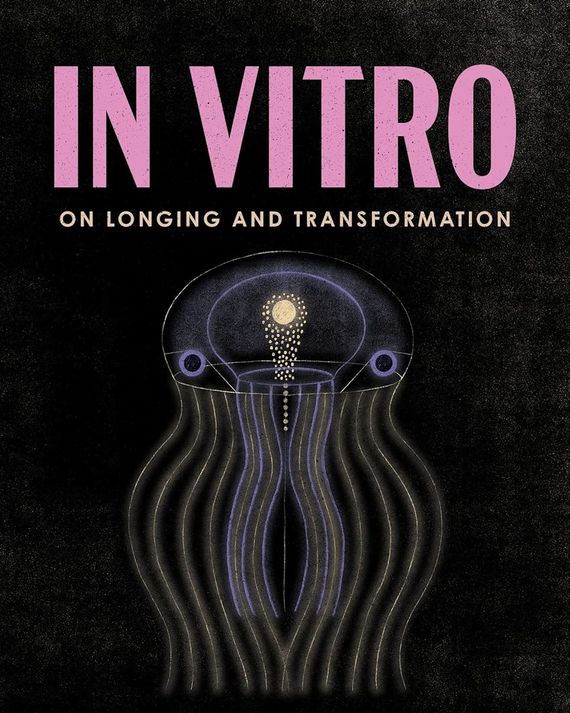
In Isabel Zapata’s intimate, entrancing memoir In Vitro , the Mexican poet brazenly breaks what she calls “the first rule of in vitro fertilization”: never talk about it. Originally published in Spanish in 2021, and with original drawings woven throughout, In Vitro is a slim collection of short, discrete pieces. Its fragments not only describe the invasive process and its effects on her mind and body, but also contextualize its lineage, locating the deep-seated draw of motherhood and conception, analyzing the inheritances of womanhood, and speaking directly to her potential child. All together, it becomes something expansive — an insightful personal history but also a brilliant philosophical text about the very nature of sacrifice and autonomy.
4. The Night Parade , by Jami Nakamura Lin
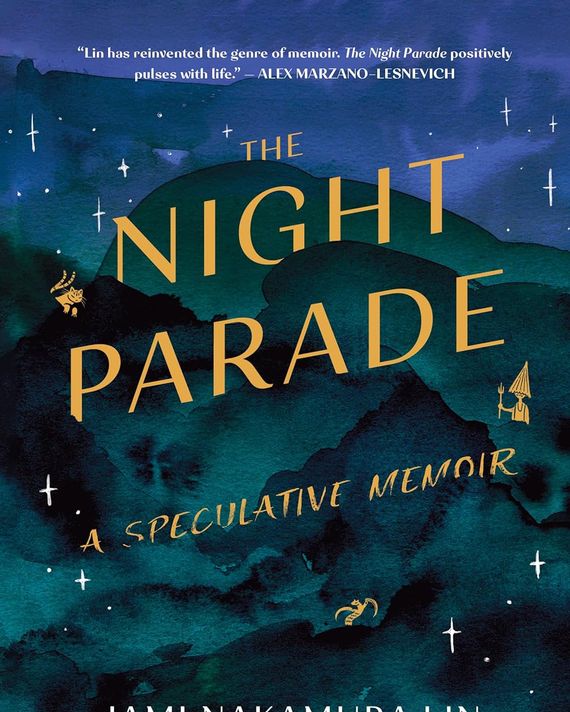
When Jami Nakamura Lin was 17 years old, she checked herself into a psych ward and was diagnosed bipolar. After years experiencing disorienting periods of rage, the diagnosis offers validation — especially for her historically dismissive parents — but it doesn’t provide the closure that mainstream depictions of mental illness promise. In The Night Parade , intriguingly categorized as a speculative memoir, Lin explains that if a story is good, it “collapses time”; in other words, it has no beginning or end. Chasing this idea, Lin turns to the stories of her Japanese, Taiwanese, and Okinawan heritage, using their demons, spirits, and monsters to challenge ideas of recovery and resituate her feelings of otherness. Intertwined in this pursuit is her grappling with the young death of her father and the birth of her daughter after a traumatic miscarriage. Extensively researched — citing not only folklore but also scholars of history, literary, and mythology — and elevated by her sister Cori Nakamura Lin’s lush illustrations, The Night Parade is both an entirely new perspective on bipolar disorder and a fascinating education in mythology by an expert who so clearly loves the material. It might be Lin’s first book, but it possesses the self-assurance, courage, and mastery of a seasoned writer.
3. Doppelganger , by Naomi Klein
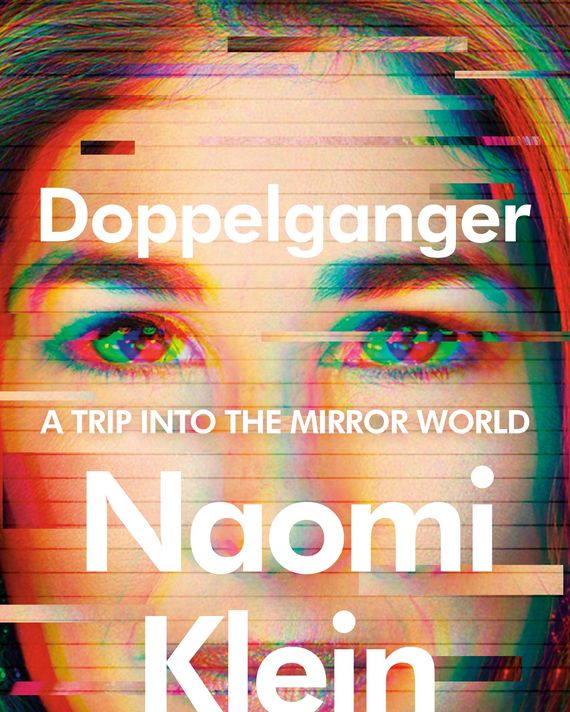
After the onset of the COVID pandemic, as the U.S. devolved into frenzied factions, sociopolitical analyst Naomi Klein found herself in the middle of her own bewildering drama: A substantial population, especially online, began to either confuse or merge her with Naomi Wolf, a writer who’d gone from feminist intellectual to anti-vaxx conspiracy theorist. Klein’s initial bemusement becomes real concern verging on obsession as she fixates on her sort-of doppelgänger and starts questioning the stability of her identity. Klein becomes entangled in the world of her opposite, tracing the possible pipelines from leftism to alt-right and poking at the cracks in our convictions. Throughout, she nails the uncanniness of our digital existence, the ways constant performance of life both splinters and constrains the self. What happens when we sacrifice our humanity in the pursuit of a cohesive personal brand? And when we’re this far gone, is there any turning back?
2. The Woman in Me , by Britney Spears
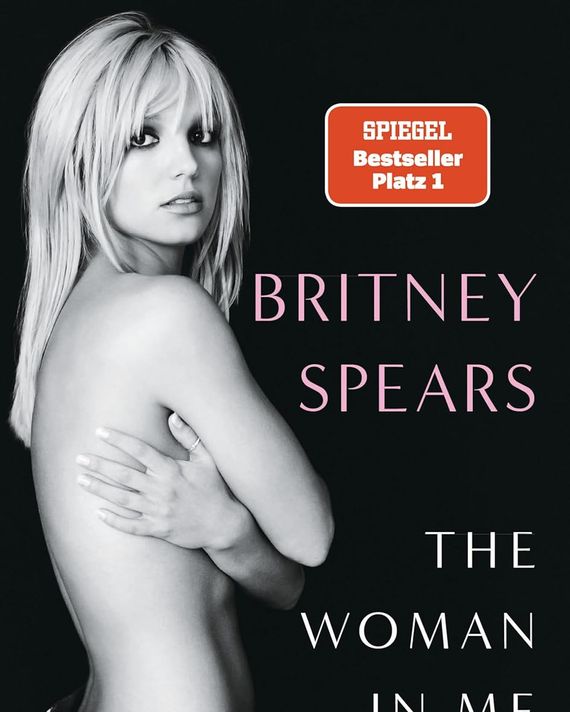
Throughout the yearslong campaign to release Britney Spears from a predatory conservatorship , the lingering conspiracy theories questioning its success , and the ongoing cultural discourse about the ways public scrutiny has harmed her, what has largely been missing is Spears’s own voice. In her highly anticipated memoir, she lays it all out: her upbringing in a family grappling with multiple generations of abuse, the promise and betrayal of stardom, her exploitation and manipulation by loved ones, and the harrowing, dehumanizing realities of her conservatorship . These revelations are tempered by moments of genuine joy she’s found in love, motherhood, and singing, though it’s impossible to read these recollections without anticipating the loss — or at least the complication — of these joys. Most touching are her descriptions of her relationships with her sons; her tone is conversational, but it resonates with deep, undying devotion. It’s an intimate story, and one that forces questions about our treatment of mental illness, the ethics of psychiatric practices, the relationships between public figures and their fans, and the effects of fame — especially on young women. Justice for Britney, forever.
1. Pulling the Chariot of the Sun , by Shane McCrae
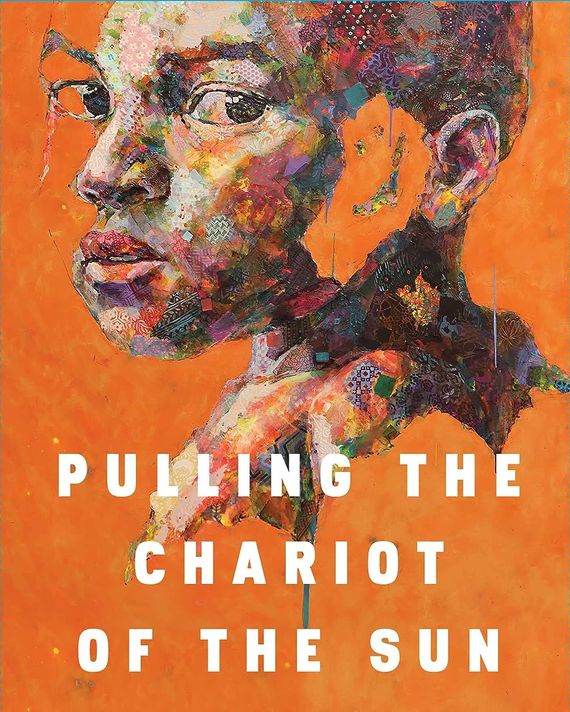
When Shane McCrae was 3 years old, his white maternal grandparents told his Black father they were taking Shane on a camping trip. It wasn’t the first time they’d done so, but this time, they never returned. What followed was a life full of instability, abuse, and manipulation, while his grandparents — including a grandfather who had, more than once, trawled cities for Black men to attack — convinced McCrae his father had abandoned him and that his Blackness was a handicap. It’s clear McCrae is first and foremost a poet; the rhythm of his prose and his hypnotic evocation of sensory memory reveals the way a lifetime of lies affected his grasp on his past. Maybe he can’t trust the facts of his past, but he certainly knows what it felt like, what it looked like. As he excavates and untangles muddied memories, contends with ambivalent feelings about his grandmother and mother, and ultimately comes to terms with their unforgivable robbery of a relationship with both his father and his true, full self, McCrae’s pain bleeds through his words — but so too does a gentle sense of acceptance. We are lucky to bear witness.
- vulture section lede
- celebrity memoirs
- britney spears
- maria bamford
- year in culture
- best of 2023
Most Viewed Stories
- Cinematrix No. 155: August 28, 2024
- A Breakdown of Armie Hammer Allegations, Controversies, and Time-share Drama
- Adam Pearson Is No Wallflower
- Oopsy! Deadpool Might Have Scabbed.
- Love Is Blind: UK Reunion Recap: Don’t Look Back in Anger
- The Bachelorette Recap: Reverse Uno
Editor’s Picks

Most Popular
What is your email.
This email will be used to sign into all New York sites. By submitting your email, you agree to our Terms and Privacy Policy and to receive email correspondence from us.
Sign In To Continue Reading
Create your free account.
Password must be at least 8 characters and contain:
- Lower case letters (a-z)
- Upper case letters (A-Z)
- Numbers (0-9)
- Special Characters (!@#$%^&*)
As part of your account, you’ll receive occasional updates and offers from New York , which you can opt out of anytime.
To help us provide you with free impartial advice, we may earn a commission if you buy through links on our site. Learn more
- Home & garden
The best biographies to read in 2023
- Nik Rawlinson

Discover what inspired some of history’s most familiar names with these comprehensive biographies
The best biographies can be inspirational, can provide important life lessons – and can warn us off a dangerous path. They’re also a great way to learn more about important figures in history, politics, business and entertainment. That’s because the best biographies not only reveal what a person did with their life, but what effect it had and, perhaps most importantly, what inspired them to act as they did.
Where both a biography and an autobiography exist, you might be tempted to plump for the latter, assuming you’d get a more accurate and in-depth telling of the subject’s life story. While that may be true, it isn’t always the case. It’s human nature to be vain, and who could blame a celebrity or politician if they covered up their embarrassments and failures when committing their lives to paper? A biographer, so long as they have the proof to back up their claims, may have less incentive to spare their subject’s blushes, and thus produce a more honest account – warts and all.
That said, we’ve steered clear of the sensational in selecting the best biographies for you. Rather, we’ve focused on authoritative accounts of notable names, in each case written some time after their death, when a measured, sober assessment of their actions and impact can be given.
READ NEXT: The best poetry books to buy
Best biographies: At a glance
- Best literary biography: Agatha Christie: A Very Elusive Woman by Lucy Worsley | £20
- Best showbiz biography: Let’s Do It: The Authorised Biography of Victoria Wood | £6.78
- Best political biography: Hitler by Ian Kershaw | £14
How to choose the best biography for you
There are so many biographies to choose from that it can be difficult knowing which to choose. This is especially true when there are several competing titles focused on the same subject. Try asking yourself these questions.
Is the author qualified?
Wikipedia contains potted biographies of every notable figure you could ever want to read about. So, if you’re going to spend several hours with a novel-sized profile it must go beyond the basics – and you want to be sure that the author knows what they’re talking about.
That doesn’t mean they need to have been personally acquainted with the subject, as Jasper Rees was with Victoria Wood. Ian Kershaw never met Adolf Hitler (he was, after all, just two years old when Hitler killed himself), but he published his first works on the subject in the late 1980s, has advised on BBC documentaries about the Second World War, and is an acknowledged expert on the Nazi era. It’s no surprise, then, that his biography of the dictator is extensive, comprehensive and acclaimed.
Is there anything new to say?
What inspires someone to write a biography – particularly of someone whose life has already been documented? Sometimes it can be the discovery of new facts, perhaps through the uncovering of previously lost material or the release of papers that had been suppressed on the grounds of national security. But equally, it may be because times have changed so much that the context of previous biographies is no longer relevant. Attitudes, in particular, evolve with time, and what might have been considered appropriate behaviour in the 1950s would today seem discriminatory or shocking. So, an up-to-date biography that places the subject’s actions and motivations within a modern context can make it a worthwhile read, even if you’ve read an earlier work already.
Does it look beyond the subject?
The most comprehensive biographies place their subject in context – and show how that context affected their outlook and actions or is reflected in their work. Lucy Worsley’s new biography of Agatha Christie is a case in point, referencing Christie’s works to show how real life influenced her fiction. Mathew Parker’s Goldeneye does the same for Bond author Ian Fleming – and in doing so, both books enlarge considerably on the biography’s core subject.
READ NEXT: Best reading lights to brighten up your page
1. Let’s Do It: The Authorised Biography of Victoria Wood by Jasper Rees: Best showbiz biography
Price: £6.78 | Buy now from Amazon
It’s hardly surprising Victoria Wood never got around to writing her own autobiography. Originator of countless sketches, songs, comedy series, films, plays, documentaries and a sitcom, she kept pushing back the mammoth job of chronicling her life until it was too late. Wood’s death in 2016 came as a surprise to many, with the entertainer taking her final bow in private at the end of a battle with cancer she had fought away from the public eye.
In the wake of her death, her estate approached journalist Jasper Rees, who had interviewed her on many occasions, with the idea of writing the story that Wood had not got around to writing herself. With their backing, Rees’ own encounters with Wood, and the comic’s tape-recorded notes to go on, the result is a chunky, in-depth, authoritative account of her life. It seems unlikely that Wood could have written it more accurately – nor more fully – herself.
Looking back, it’s easy to forget that Wood wasn’t a constant feature on British TV screens, that whole years went by when her focus would be on writing or performing on stage, or even that her career had a surprisingly slow start after a lonely childhood in which television was a constant companion. This book reminds us of those facts – and that Wood wasn’t just a talented performer, but a hard worker, too, who put in the hours required to deliver the results.
Let’s Do It, which takes its title from a lyric in one of Wood’s best-known songs, The Ballad of Barry & Freda, is a timely reminder that there are two sides to every famous character: one public and one private. It introduces us to the person behind the personality, and shows how the character behind the characters for which she is best remembered came to be.
Key specs – Length: 592 pages; Publisher: Trapeze; ISBN: 978-1409184119

Let's Do It: The Authorised Biography of Victoria Wood
2. the chief: the life of lord northcliffe, britain’s greatest press baron by andrew roberts: best business biography.

Lord Northcliffe wasn’t afraid of taking risks – many of which paid off handsomely. He founded a small paper called Answers to Correspondents, branched out into comics, and bought a handful of newspapers. Then he founded the Daily Mail, and applied what he’d learned in running his smaller papers on a far grander scale. The world of publishing – in Britain and beyond – was never the same again. The Daily Mail was a huge success, which led to the founding of the Daily Mirror, primarily for women, and his acquisition of the Observer, Times and Sunday Times.
By then, Northcliffe controlled almost half of Britain’s daily newspaper circulation. Nobody before him had ever enjoyed such reach – or such influence over the British public – as he did through his titles. This gave him sufficient political clout to sway the direction of government in such fundamental areas as the establishment of the Irish Free State and conscription in the run-up to the First World War. He was appointed to head up Britain’s propaganda operation during the conflict, and in this position he became a target for assassination, with a German warship shelling his home in Broadstairs. Beyond publishing, he was ahead of many contemporaries in understanding the potential of aviation as a force for good, as a result of which he funded several highly valuable prizes for pioneers in the field.
He achieved much in his 57 years, as evidenced by this biography, but suffered both physical and mental ill health towards the end. The empire that he built may have fragmented since his passing, with the Daily Mirror, Observer, Times and Sunday Times having left the group that he founded, but his influence can still be felt. For anyone who wants to understand how and why titles like the Daily Mail became so successful, The Chief is an essential read.
Key specs – Length: 556 pages; Publisher: Simon & Schuster; ISBN: 978-1398508712

The Chief: The Life of Lord Northcliffe Britain's Greatest Press Baron
3. goldeneye by matthew parker: best biography for cinema fans.

The name Goldeneye is synonymous with James Bond. It was the title of both a film and a video game, a fictional super weapon, a real-life Second World War plan devised by author Ian Fleming, and the name of the Jamaican estate where he wrote one Bond book every year between 1952 and his death in 1964. The Bond film makers acknowledged this in 2021’s No Time To Die, making that estate the home to which James Bond retired, just as his creator had done at the end of the war, 75 years earlier.
Fleming had often talked of his plan to write the spy novel to end all spy novels once the conflict was over, and it’s at Goldeneye that he fulfilled that ambition. Unsurprisingly, many of his experiences there found their way into his prose and the subsequent films, making this biography as much a history of Bond itself as it is a focused retelling of Fleming’s life in Jamaica. It’s here, we learn, that Fleming first drinks a Vesper at a neighbour’s house. Vesper later became a character in Casino Royale and, in the story, Bond devises a drink to fit the name. Fleming frequently ate Ackee fish while in residence; the phonetically identical Aki was an important character in You Only Live Twice.
Parker finds more subtle references, too, observing that anyone who kills a bird or owl in any of the Bond stories suffers the spy’s wrath. This could easily be overlooked, but it’s notable, and logical: Fleming had a love of birds, and Bond himself was named after the ornithologist James Bond, whose book was on Fleming’s shelves at Goldeneye.
So this is as much the biography of a famous fictional character as it is of an author, and of the house that he occupied for several weeks every year. So much of Fleming’s life at Goldeneye influenced his work that this is an essential read for any Bond fan – even if you’ve already read widely on the subject and consider yourself an aficionado. Parker’s approach is unusual, but hugely successful, and the result is an authoritative, wide-ranging biography about one of this country’s best-known authors, his central character, an iconic location and a country in the run-up to – and immediately following – its independence from Britain.
Key specs – Length: 416 pages; Publisher: Windmill Books; ISBN: 978-0099591740

Goldeneye: Where Bond was Born: Ian Fleming's Jamaica
4. hitler by ian kershaw: best political biography.

The latter portion of Adolf Hitler’s life, from his coming to power in 1933 to his suicide in 1945, is minutely documented, and known to a greater or lesser degree by anyone who has passed through secondary education. But what of his earlier years? How did this overlooked art student become one of the most powerful and destructive humans ever to have existed? What were his influences? What was he like?
Kershaw has the answers. This door stopper, which runs to more than 1,000 pages, is an abridged compilation of two earlier works: Hitler 1889 – 1936: Hubris, and Hitler 1936 – 1946: Nemesis. Yet, abridged though it may be, it remains extraordinarily detailed, and the research shines through. Kershaw spends no time warming his engines: Hitler is born by page three, to a social-climbing father who had changed the family name to something less rustic than it had been. As Kershaw points out, “Adolf can be believed when he said that nothing his father had done pleased him so much as to drop the coarsely rustic name of Schicklgruber. ‘Heil Schicklgruber’ would have sounded an unlikely salutation to a national hero.”
There’s no skimping on context, either, with each chapter given space to explore the political, economic and social influences on Hitler’s development and eventual emergence as leader. Kershaw pinpoints 1924 as the year that “can be seen as the time when, like a phoenix arising from the ashes, Hitler could begin his emergence from the ruins of the broken and fragmented volkisch movement to become eventually the absolute leader with total mastery over a reformed, organisationally far stronger, and internally more cohesive Nazi Party”. For much of 1924, Hitler was in jail, working on Mein Kampf and, by the point of his release, the movement to which he had attached himself had been marginalised. Few could have believed that it – and he – would rise again and take over first Germany, then much of Europe. Here, you’ll find out how it happened.
If you’re looking for an authoritative, in-depth biography of one of the most significant figures in modern world history, this is it. Don’t be put off by its length: it’s highly readable, and also available as an audiobook which, although it runs to 44 hours, can be sped up to trim the overall running time.
Key specs – Length: 1,072 pages; Publisher: Penguin; ISBN: 978-0141035888

5. Stalin’s Architect: Power and Survival in Moscow by Deyan Sudjic: Best historical biography

Boris Iofan died in 1976, but his influence can still be felt today – in particular, through the architectural influences evident in many mid-century buildings across Eastern Europe. Born in Odessa in 1891, he trained in architecture and, upon returning to Russia after time spent in Western Europe, gained notoriety for designing the House on the Embankment, a monumental block-wide building containing more than 500 flats, plus the shops and other facilities required to service them.
“Iofan’s early success was based on a sought-after combination of characteristics: he was a member of the Communist Party who was also an accomplished architect capable of winning international attention,” writes biographer Deyan Sudjic. “He occupied a unique position as a bridge between the pre-revolutionary academicians… and the constructivist radicals whom the party saw as bringing much-needed international attention and prestige but never entirely trusted. His biggest role was to give the party leadership a sense of what Soviet architecture could be – not in a theoretical sense or as a drawing, which they would be unlikely to understand, but as a range of built options that they could actually see.”
Having established himself, much of the rest of his life was spent working on his designs for the Palace of the Soviets, which became grander and less practical with every iteration. This wasn’t entirely Iofan’s fault. He had become a favourite of the party elite, and of Stalin himself, who added to the size and ambition of the intended building over the years. Eventually, the statue of Lenin that was destined to stand atop its central tower would have been over 300ft tall, and would have had an outstretched index finger 14ft long. There was a risk that this would freeze in the winter, and the icicles that dropped from it would have been a significant danger to those going into and out of the building below it.
Although construction work began, the Palace of the Soviets was never completed. Many of Iofan’s other buildings remain, though, and his pavilions for the World Expos in Paris and New York are well documented – in this book as well as elsewhere. Lavishly illustrated, it recounts Iofan’s life and examines his work in various stages, from rough outline, through technical drawing, to photographs of completed buildings – where they exist.
Key specs – Length: 320 pages; Publisher: Thames and Hudson; ISBN: 978-0500343555

Stalin's Architect: Power and Survival in Moscow
6. agatha christie: a very elusive woman by lucy worsley: best literary biography.

Agatha Christie died in 1976 but, with more than 70 novels and 150 short stories to her name, she remains one of the best-selling authors of all time. A new biography from historian Lucy Worsley is therefore undoubtedly of interest. It’s comprehensive and highly readable – and opinionated – with short chapters that make it easy to dip into and out of on a break.
Worsley resists the temptation to skip straight to the books. Poirot doesn’t appear until chapter 11 with publication of The Mysterious Affair at Styles, which Christie wrote while working in a Torquay hospital. Today, Poirot is so well known, not only from the books but from depictions in film and television, that it’s easy to overlook how groundbreaking the character was upon his arrival.
As Worsley explains, “by choosing to make Hercule Poirot a foreigner, and a refugee as well, Agatha created the perfect detective for an age when everyone was growing surfeited with soldiers and action heroes. He’s so physically unimpressive that no-one expects Poirot to steal the show. Rather like a stereotypical woman, Poirot cannot rely upon brawn to solve problems, for he has none. He has to use brains instead… There’s even a joke in his name. Hercules, of course, is a muscular classical hero, but Hercule Poirot has a name like himself: diminutive, fussy, camp, and Agatha would show Poirot working in a different way to [Sherlock] Holmes.” Indeed, where Holmes rolls around on the floor picking up cigar ash in his first published case, Poirot, explains Worsley, does not stoop to gather clues: he needs only his little grey cells. Worsley’s approach is thorough and opinionated, and has resulted not only in a biography of Christie herself, but also her greatest creations, which will appeal all the more to the author’s fans.
As with Matthew Parker’s Goldeneye, there’s great insight here into what influenced Christie’s work, and Worsley frequently draws parallels between real life events and episodes, characters or locations in her novels. As a result of her experiences as a medical volunteer during the First World War, for example, during which a rigid hierarchy persisted and the medics behaved shockingly, doctors became the most common culprit in her books; the names of real people found their way into her fiction; and on one occasion Christie assembled what today might be called a focus group to underpin a particular plot point.
Worsley is refreshingly opinionated and, where events in the author’s life take centre stage, doesn’t merely re-state the facts, but investigates Christie’s motivations to draw her own conclusions. This is particularly the case in the chapters examining Christie’s disappearance in 1926, which many previous biographers have portrayed as an attempt to frame her husband for murder. Worsley’s own investigation leads to alternative conclusions, which seem all the more plausible today, when society has a better understanding of – and is more sympathetic towards – the effects of psychological distress.
Key specs – Length: 432 pages; Publisher: Hodder & Stoughton; ISBN: 978-1529303889
Buy now from Waterstones

New Releases in Historical Biographies

- ← Previous page
- Next page →

- About Amazon
- Investor Relations
- Amazon Devices
- Amazon Science
- Sell products on Amazon
- Sell on Amazon Business
- Sell apps on Amazon
- Become an Affiliate
- Advertise Your Products
- Self-Publish with Us
- Host an Amazon Hub
- › See More Make Money with Us
- Amazon Business Card
- Shop with Points
- Reload Your Balance
- Amazon Currency Converter
- Amazon and COVID-19
- Your Account
- Your Orders
- Shipping Rates & Policies
- Returns & Replacements
- Manage Your Content and Devices
- Conditions of Use
- Privacy Notice
- Consumer Health Data Privacy Disclosure
- Your Ads Privacy Choices

Subscription Offers
Give a Gift

Books of the Year 2023
Revolutions and rubles, godlings and fascist symbols, Shakespeare and silk: ten historians choose their favourite new history books of 2023.
‘This is how economic history should be done’
Peter Brown is Philip and Beulah Rollins Professor of History, Emeritus at Princeton University and author of Journeys of the Mind: A Life in History (Princeton, 2023)
Meticulously researched and written with flair, Ekaterina Pravilova’s The Ruble: A Political History (Oxford) is the story of how monetary policy, seemingly the most impersonal of forces, resonated throughout an immense and diverse empire touching every aspect, from daily life to high politics and the social imagination. An unequalled introduction to modern Russia, this is how economic history should be done.
Christopher I. Beckwith’s The Scythian Empire: Central Eurasia and the Birth of the Classical Age from Persia to China (Princeton) spans the world from China to the Danube, joining revolutions of military technology and social practice with equally profound breakthroughs in the human mind – Plato, Zoroaster and the Buddha. Prodigiously learned, the book is full of hitherto unthought-of connections across the northern steppes. Not everyone will agree with Beckwith, but all will be challenged by his book which turns the classical world as we know it inside out.
The Ruble: A Political History Robert Darnton Oxford, 576pp, £30.99 Buy from bookshop.org (affiliate link)
The Scythian Empire: Central Eurasia and the Birth of the Classical Age from Persia to China Christopher I. Beckwork Princeton, 416pp, £35 Buy from bookshop.org (affiliate link)
‘Lyrical and iconoclastic by turns’
Emma Smith is Professor of Shakespeare Studies at Hertford College, Oxford and author of Portable Magic: A History of Books and their Readers (Allen Lane, 2023)
Four centuries after Shakespeare’s First Folio left the Jaggards’ print shop in the Barbican, the British Library have produced a beautiful facsimile of one of their copies, complete with the original volume’s bright red gold-tooled binding. Uncluttered by introduction or commentary, this lovely book is as close as most of us will ever get to the real thing.
Moving from page to the stage, Callan Davies’ refreshing book What Is a Playhouse? England at Play 1520-1620 (Routledge) re-examines an economy of fun. If the First Folio put the plays firmly in the study, Davies examines them in the context of the entertainments of their time, including gambling, sport, drinking and bear-baiting.
Finally, Joe Minden’s collection Poppy (Carcanet) thinks anew about the tropes of war poetry, and about the relationship between literature, memory and history: lyrical and iconoclastic by turns, this is a poet to look out for.
Shakespeare's First Folio William Shakespeare British Library, 912pp, £125 Buy from bookshop.org (affiliate link)
What is a Playhouse?: England at Play, 1520-1620 Callan Davies Routledge, 230pp, £35.99 Buy from bookshop.org (affiliate link)
Poppy Joseph Minden Carcanet, 112pp, £11.99 Buy from bookshop.org (affiliate link)
‘A refreshing reappraisal’
Sheila Miyosh Jager is Professor of East Asian History at Oberlin College, Ohio and author of The Other Great Game: The Opening of Korea and the Birth of Modern East Asia (Belknap Press, 2023)
Chiang Kai-shek led the Republic of China for almost 50 years from 1926. Drawing on his diaries and unused Russian archives, Alexander V. Pantsov’s Victorious in Defeat: The Life and Times of Chiang Kai-shek, China, 1887-1975 (Yale) is a refreshing reappraisal of a man who was neither the corrupt fascist of standard historiography nor the tragic hero of more recent positive reassessments.
During a gloomy period, it is good to have a reminder that the US has survived periods of tumult and self-doubt. Adam Hochschild’s American Midnight: The Great War, A Violent Peace, and Democracy’s Forgotten Crisis (Mariner) paints a picture of America in the years following its entry into the war. Patriotic frenzy, strikes, race riots and anarchist bombings unleashed a wave of political repression which taught a later generation of liberals that it was better to absorb some radical ideas than to reject them altogether.
Victorious in Defeat: The Life and Times of Chiang Kai-shek, China, 1887-1975 Alexander V. Pantsov Yale, 736pp, £30 Buy from bookshop.org (affiliate link)
American Midnight: The Great War, A Violent Peace, and Democracy’s Forgotten Crisis Adam Hochschild Mariner, 432pp, £12.99 Buy from bookshop.org (affiliate link)
‘Empires were neither devilish slaughterhouses nor philanthropic charities’
Pratinav Anil is Lecturer at St Edmund Hall, Oxford and author of Another India: The Making of the World’s Largest Muslim Minority, 1947-77 (Hurst, 2023)
With an unenviable ringside view of the culture wars, I’ve had to slog through many a dispiriting polemic on the British Empire this year. Yet as some histories have shown – such as Nandini Das’ account of London’s froward, foppish first ambassador to India, Courting India: England, Mughal India and the Origins of Empire (Bloomsbury), and Matthew Parker’s history of the British Empire at its territorial zenith, One Fine Day: Britain’s Empire on the Brink (Abacus) – empires were neither devilish slaughterhouses nor philanthropic charities but rather precarious, parsimonious things.
I also enjoyed Tamson Pietsch’s brilliant The Floating University: Experience, Empire, and the Politics of Knowledge (Chicago), in which a rogue university professor sets up a college at sea. Posh brats are also up to no good in John Brewer’s whimsical Volcanic: Vesuvius in the Age of Revolutions (Yale) on romance and revolution in 19th-century Naples. Hot stuff.
Courting India: England, Mughal India and the Origins of Empire Nandini Das Bloomsbury, 480pp, £30 Read our original review Buy from bookshop.org (affiliate link)
One Fine Day: Britain's Empire on the Brink Matthew Parker Abacus, 625pp, £25 Buy from bookshop.org (affiliate link)
The Floating University: Experience, Empire, and the Politics of Knowledge Tamson Pietsch Chicago, 331pp, £32 Buy from bookshop.org (affiliate link)
Volcanic: Vesuvius in the Age of Revolutions John Brewer Yale, 664pp, £30 Buy from bookshop.org (affiliate link)
‘A vibrant long-term narrative’
Patricia Fara is Emeritus Fellow of Clare College, Cambridge and columnist at History Today
‘The future is not what it used to be’, quips Richard Fisher in The Long View: Why We Need to Transform How the World Sees Time (Wildfire. His lively manifesto for the Anthropocene Age investigates diverse attitudes towards time and the human tendency to favour short-term rewards. For our world to survive, he insists, we must take action now: tomorrow will be too late.
An equally vibrant long-term narrative is Aarathi Prasad’s Silk: A History in Three Metamorphoses (William Collins), which glides effortlessly between Neolithic sculpture, insects and the tantalising lure of fabricating smart materials with medical applications. In contrast, Maria Smilios focuses on a single but shameful episode in US history. The Black Angels: The Untold Story of the Nurses Who Helped Cure Tuberculosis (Little, Brown) evocatively relates the stories of black nurses recruited to care for white sufferers from tuberculosis during the Great Depression.
The Long View: Why We Need to Transform How the World Sees Time Richard Fisher Wildfire, 352pp, £25 Buy from bookshop.org (affiliate link)
Silk: A History in Three Metamorphoses Aarathi Prasad William Collins, 368pp, £22 Buy from bookshop.org (affiliate link)
The Black Angels: The Untold Story of the Nurses Who Helped Cure Tuberculosis Maria Smilios Little, Brown, 448pp, £35 Buy from bookshop.org (affiliate link)
‘A fascinating study of legends and popular belief’
Eleanor Parker is Lecturer in Medieval English Literature at Brasenose College, Oxford and columnist at History Today
The book that gave me the most to think about this year was Francis Young’s Twilight of the Godlings: The Shadowy Beginnings of Britain’s Supernatural Beings (Cambridge), which traces the history of belief in fairies, elves, landscape spirits and other ‘godlings’ from the pre-Roman period up to the end of the Middle Ages. It’s a fascinating study of legends and popular beliefs which have historically often been marginalised or misunderstood.
A very different strand of medieval belief is explored by Michelle P. Brown in Bede and the Theory of Everything (Reaktion). Brown takes an integrated view of Bede’s life and work as a historian, scientist, scribe, poet and translator. She argues that for Bede all these fields of study were as richly interconnected as the intricate artwork of the Lindisfarne Gospels: his was a view of history ‘grounded in an appreciation of long time and space and the interconnectivity of all things’.
Twilight of the Godlings: The Shadowy Beginnings of Britain’s Supernatural Beings Francis Young Cambridge, 350pp, £30 Buy from bookshop.org (affiliate link)
Bede and the Theory of Everything Michelle P. Brown Reaktion, 312pp, £16.95 Buy from bookshop.org (affiliate link)
‘This wry scholarly autobiography excels in its pen portraits’
Michael Ledger-Lomas is Author of Queen Victoria: This Thorny Crown (Oxford, 2021)
As Peter Brown’s histories of antique Christianity have been models for my explorations of Victorian religion, I was gripped by Journeys of the Mind: A Life in History (Princeton). This wry scholarly autobiography excels in its pen portraits of scholars who have influenced Brown, from Mary Douglas to Michel Foucault.
Christopher Clark’s Revolutionary Spring: Fighting for a New World, 1848-1849 (Allen Lane) confirms his standing as a maestro of contingency. His panoramic book presents the European revolutions as a ‘particle collision chamber’ for peoples and movements, which generated new ideologies and forms of governmentality.
Stephen Bown’s Dominion: The Railway and the Rise of Canada (Doubleday) shows how the Canadian Pacific Railway strengthened imperial Canada by linking its two coasts. This model popular history offers Canadians a coherent but unillusioned narrative about how their state came to be, which emphasises the ruthlessness as well as the ambition of its architects.
Journeys of the Mind: A Life in History Peter Brown Princeton, 736pp, £38 Buy from bookshop.org (affiliate link)
Revolutionary Spring: Fighting for a New World, 1848-1849 Christopher Clark Allen Lane, 896pp, £35 Read our original review Buy from bookshop.org (affiliate link)
Dominion: The Railway and the Rise of Canada Stephen Brown Doubleday, 416pp, £25
‘Makes artful use of records, recounting matters as mundane as travel permits, tax investigations and deportations’
Amrita Malhi is Researcher at Flinders University and the Australian National University
Kalyani Ramnath’s Boats in a Storm: Law, Migration, and Decolonization in South and Southeast Asia, 1942-1962 (Stanford) is an important examination of the way the Second World War and subsequent decolonisation broke the circuits connecting South and Southeast Asia – circuits in which hundreds of thousands of mobile Indians lived their lives. Through the lens of law, and her own family’s flight from Burma, Ramnath recounts how the Japanese occupation forced many of these Indians to ‘return’ to India, complicating their claims to citizenship in the newly independent states that emerged after the war. Ramnath makes artful use of records, recounting matters as mundane as travel permits, tax investigations and deportations to show how ordinary people experienced decolonisation as a rupture that restructured lives lived ‘around and across’ the Indian Ocean.
Boats in a Storm: Law, Migration, and Decolonization in South and Southeast Asia, 1942-1962 Kalyani Ramnath Stanford, 308pp, £25.99 Buy from bookshop.org (affiliate link)
‘Brilliantly combines technical knowledge and historical insights’
Rhiannon Ash is Professor of Roman Historiography at Merton College, University of Oxford
When is a tree not a tree? When Annalisa Marzano offers her vibrant and perceptive study of the cultural and political dimension of Roman arboriculture, exploring the movement of plants from one part of the empire to another as a way to understand key aspects of Roman imperialism, culture and identity. In Plants, Politics, and Empire in Ancient Rome (Cambridge), Marzano brilliantly combines technical knowledge and historical insights to deliver a unique study of the era of the principate of Emperor Augustus and beyond.
T. Corey Brennan’s The Fasces: A History of Ancient Rome’s Most Dangerous Political Symbol (Oxford) is a wide-reaching, ambitious book presenting a global history of fasces (‘an assemblage of wooden rods, typically about a meter and a half long, bound by leather straps together with a single-headed axe – the equipment needed to inflict either corporal or capital punishment’). Brennan covers a vast sweep of time, moving from their Etruscan origins in antiquity to the revival of the symbol in fascist Europe.
Plants, Politics, and Empire in Ancient Rome Annalisa Marzano Allen Lane, 380pp, £90
The Fasces: A History of Ancient Rome’s Most Dangerous Political Symbol T. Corey Brennan Oxford, 288pp, £26.49 Buy from bookshop.org (affiliate link)
‘Raises interesting questions about how we use historical evidence’
Nandini Das is author of Courting India: England, Mughal India and the Origins of Empire (Bloomsbury)
I have been thinking a lot about life-writing and biographies recently. Fool: In Search of Henry VIII’s Closest Man by Peter K. Andersson (Princeton) is a fascinating look at Will Somer, Henry VIII’s court fool. It is a book that makes a great case for looking at history through those who are often disregarded, but also raises interesting questions about how we use historical evidence – particularly when that evidence is of the non-traditional sort (in Somer’s case his afterlife in Tudor jest-books and drama).
Then there is Pure Wit: The Revolutionary Life of Margaret Cavendish by Francesca Peacock (Bloomsbury), which places the eccentric, volatile writer of The Blazing World against the backdrop of all the political and intellectual turmoil of her time.
And I can’t wait for readers to see Ruby Lal’s Vagabond Princess: The Great Adventures of Gulbadan (Yale), out early next year, which will shed new light on our understanding of the lives of pre-modern Islamic women travellers.
Fool: In Search of Henry VIII’s Closest Man Peter K. Andersson Princeton, 224pp, £22 Read our original review Buy from bookshop.org (affiliate link)
Pure Wit: The Revolutionary Life of Margaret Cavendish Francesca Peacock Bloomsbury, 384pp, £27.99 Buy from bookshop.org (affiliate link)
Vagabond Princess: The Great Adventures of Gulbadan Ruby Lal Yale, 280pp, £22 Buy from bookshop.org (affiliate link)
Related Articles
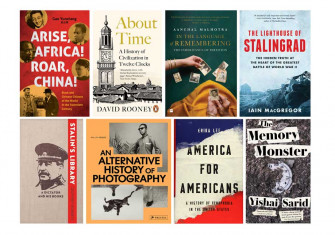
Books of the Year 2022
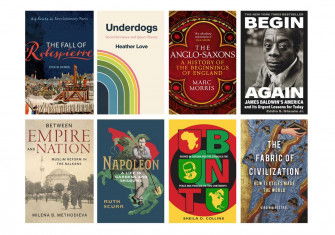
Books of the Year 2021
Popular articles.
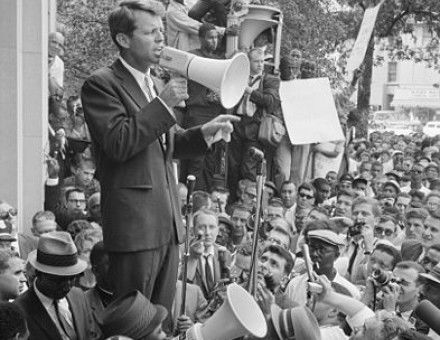
The Assassination of Robert Kennedy
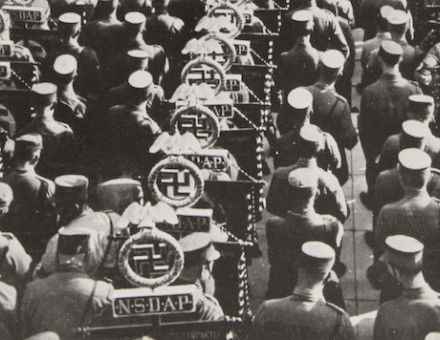
‘Hitler’s People’ by Richard Evans review

10 Best Biographies/Memoirs of 2023
10 best biographies of 2023.
It’s been a big year for biographies, with everything from Prince Harry to Britney Spear delivering their own books. There have been a lot of excellent books in this category this year .
In this curated list, we delve into the best biographies that captivated us this year. As usual, the books below are listed in no particular order but of course, do let us know your favourites in the comments below!
So join us as we celebrate the narratives that have defined 2023, each a unique testament to the enduring power of storytelling.

The Woman in Me – Britney Spears
The Woman in Me is an intimate and courageous memoir that chronicles the remarkable journey for one of pop music’s most iconic figures, Britney Spears. This deeply personal narrative unfolds against the backdrop of her historic June 2021 court testimony, a moment that not only altered Britney’s trajectory in life, but also resonated with people around the globe. Spears’s story is one of resilience and transformation, capturing the essence of freedom, motherhood, and survival.
Spears opens up about her life in this book with honesty and humor that is both refreshing and profound. She shares her experiences in the limelight, detailing the struggles and triumphs that have defined her career and personal life. Her account goes beyond the sensational headlines, offering readers a glimpse into the heart and soul of an artist who has captivated millions.
Spears’s narrative is more than a memoir; it’s a powerful testament to the strength and resilience inherent in her character. “The Woman in Me” is a celebration of the healing power of music and love, and the vital importance of autonomy in storytelling. Britney’s voice—clear, unfiltered, and unapologetic—echoes throughout the pages, emphasizing the significance of a woman taking control of her narrative and speaking her truth.
This book is not only a milestone in Spears’s life but also an inspiring tale of hope and empowerment, making it a must-read for her fans and supporters of women’s rights alike.
A Memoir of My Former Self – Hilary Mantel
A Memoir of My Former Self is a rich collection of Hilary Mantel’s finest journalistic and personal writings, spanning four decades. Known for her distinguished career as a novelist, Mantel brings her keen insight and eloquent prose to a variety of subjects, offering readers a glimpse into both her life and the broader world as she sees it. Embracing her belief that “ink is a generative fluid,” she crafts essays that resonate with intention and depth.
Mantel’s work traverses a wide array of themes. She reflects on nationalism and her own sense of identity, delves into the interplay between our dreams and waking life, and revisits the enduring mythos of Princess Diana.
From her unique childhood to her obsession with Thomas Cromwell, which culminated in the acclaimed Wolf Hall trilogy, this memoir presents the evolution of Hilary Mantel’s life and thoughts. A Memoir of My Former Self is a wonderful book and certainly one of the best released this year.
The Forgotten Girls – Monica Potts
In this poignant and revealing book, an accomplished journalist revisits her roots in a small Arkansas town to unravel the stark contrast between her life and that of her childhood best friend, Darci.
Growing up in the economically declining Ozarks, both Monica and Darci were bright, working-class girls with dreams that stretched far beyond the confines of their troubled community. United by their love for reading and learning, they faced the harsh realities of their town: broken homes, alcoholism, and the gradual decay of local businesses and factories.
While Monica managed to break free, attending college and pursuing her dreams, Darci’s story took a tragically different turn. Years later, as Monica covers poverty and its impacts, she learns of the alarming decrease in life expectancy among women in rural areas like her hometown.
Darci represents a harrowing statistic: a single mother battling meth and prescription drug addiction, struggling with unemployment and near homelessness. Through her narrative, she sheds light on the critical issues affecting poor, rural white women in America, offering an intimate and eye-opening look at the realities often overlooked in national discourse.
Abroad in Japan – Chris Broad
In Abroad in Japan, Chris Broad shares his adventurous journey into Japan in his often humorous journey of adapting to life in rural northern Japan. Arriving with no experience in teaching and little command of the Japanese language, Chris wonders if his stint as an English teacher might be short-lived. Instead, what unfolds is a decade of rich experiences in one of the world’s most intriguing and complex cultures.
This is a captivating narrative that spans all forty-seven prefectures of Japan, from tranquil rice fields to the vibrant streets of Tokyo. Chris recounts a variety of extraordinary experiences, including a nerve-wracking North Korean missile scare, an embarrassing encounter in a love hotel, and an unforgettable week with Japan’s biggest movie star. His stories are not just entertaining; they offer a deep dive into the heart of Japanese culture.
Chris’s journey is a testament to the transformative power of travel and the value of embracing the unknown with an open mind and heart.
Strong Female Character – Fern Brady
Strong Female Character is a ground-breaking memoir by Fern Brady that confronts the intersection of sexism and neurodiversity. Brady, a neurodivergent, working-class woman from Scotland, offers an eye-opening exploration of how societal expectations clash with the realities of being an autistic woman. The book challenges the preconceived notions of both autism and femininity, highlighting the unique struggles and triumphs that come with navigating these identities.
Brady’s narrative is unflinchingly honest, delving into deeply personal experiences such as sex work, abusive relationships, and her time in teenage mental health units. She critically examines the Manic Pixie Dream Girl stereotype, a trope often misleadingly associated with neurodiverse women, and dismantles it with the force of her lived experience.
This memoir is not just a personal account; it’s a powerful statement on the complexities of being a neurodivergent woman in a world that often misunderstands and overlooks such experiences.
Friendaholic – Elizabeth Day
In Friendaholic: Confessions of a Friendship Addict, Elizabeth Day delves into the oft-overlooked yet vital world of friendships, challenging the societal emphasis on romantic love.
Growing up with few friends, Elizabeth equated the number of friendships with being loved and secure. As an adult, she prides herself on being a Good Friend, only to realize that this pursuit sometimes comes at the cost of her own boundaries and mental health.
The onset of the global pandemic in 2020 sees Elizabeth re-evaluate her understanding of friendship. Confronted with the reality that her closest friends weren’t necessarily those she spent the most time with, she begins to question the nature of these relationships. This introspection leads to broader inquiries: Is there such a thing as having too many friends? How well does one truly understand the role they play as a friend?
The Strength of Love – Kate Garraway
Kate Garraway’s The Strength of Love offers a profound and moving account of resilience and hope amidst life’s most challenging circumstances. This deeply personal narrative unfolds in the wake of her husband Derek’s battle with the severe impacts of Covid, a struggle that has dramatically altered their family life, requiring 24-hour care and frequent hospitalizations.
Kate’s journey is one of constant uncertainty and daily challenges, testing her strength and that of her family at every turn.
Garraway’s book delves into universal themes that resonate with many: the nature of trauma, the critical role of resilience and adaptability, and the power of staying curious and positive in the face of adversity. She candidly discusses the concepts of identity and purpose, offering insights into how to embrace uncertainty and regain control in times of turmoil. Her experiences and reflections provide solace and wisdom to those grappling with loneliness, loss, or fear of the unknown.
Spare – Prince Harry
Much has been made of Prince Harry and his wife Meghan Markle, with opinion swinging like a pendulum between outright hatred to incredulous disbelief. Following their bombshell interview with Oprah Winfrey and the subsequent fall-out with the Royal Family, Harry and Meghan have attempted to lift the curtain and explain exactly what’s happened and what’s led them to where we are today.
Spare is a revealing and deeply personal memoir in that respect, ghost-written by J.R. Moehringer but written in first-person perspective to authenticate the feel of what’s in here. Prince Harry’s book is split across three parts in this 410 page book. After a brief prologue starting at Prince Philip’s death, we cut back to just before Princess Diana’s death, leading through Harry’s years growing up as the “Spare” to Prince William (the “heir”) along with his time in the military and up to the Queen’s death.
The writing itself is mostly reserved to short and snappy sub-chapters, which are split into three parts, the first focusing on the past and growing up, the second on Harry’s time in the military and the third on Harry’s love life and meeting Meghan Markle.
It’s a book that reveals far more about the underbelly of the Royal Family than you’re likely to see anywhere else. Quite how this story will eventually end is anyone’s guess but for anyone remotely interested in the Royal Family, this is an absolute must-read.
Elon Musk – Walter Isaacson
In his latest biography, the acclaimed author of “Steve Jobs” presents an intimate and compelling portrait of Elon Musk, one of the most enigmatic and influential figures of our time. This book delves deep into Musk’s journey from a bullied child in South Africa to a visionary entrepreneur reshaping the future with electric vehicles, private space exploration, and artificial intelligence. It also explores his dramatic takeover of Twitter, a platform that symbolizes both a personal and professional battleground for him.
Author Isaacson provides an unprecedented look into Musk’s world, having shadowed him for two years, witnessing first-hand the workings of his mind and operations. Through extensive interviews with Musk, as well as those who know him best—family, friends, co-workers, and rivals—the biography paints a vivid picture of a man who is as complex as he is visionary. It raises probing questions: Are the very traits that make Musk a relentless innovator also the sources of his deepest struggles? This biography offers a fascinating exploration of Musk’s life, achievements, and the inner demons that drive him, making it a standout addition to the best biographies of 2023.
Seventeen – Joe Gibson
Seventeen is a shocking and eye-opening memoir, written by Joe Gibson. In this revealing book, we’re whisked back to 1992. Like every other seventeen-year-old boy, Joe has one eye on his studies, the other on his social life. He’s looking ahead to a gap year full of travel and adventure before university. Only, there’s a problem. When Joe’s teacher – attractive, mid-thirties – takes an interest in him, it seems like a fantasy come true.
For his final two years at school, Joe is bound to her, a woman twice his age, in an increasingly tangled web of coercion, sex and lies. Their affair, a product of complex grooming and a shocking abuse of authority, is played out in the corridors of one of Britain’s major private schools, under the noses of people who suspected, even knew, but said nothing.
With a heady dose of nostalgia for the 90’s, and the perfectly captured mood of those final months at school, Joe charts the legacy of deceit and indelibility of decisions made at seventeen.
Closing Thoughts
2023 has been a big year for biography fans. There have been some great selections this year and above our just our favourite picks!
What will 2024 have in store for us? Hopefully more of the same!
So, there we have it, our picks for the best biographies of 2023! Let us know what you think of our choices in the comments below and remind us of any others you enjoyed this year above all others!
Leave a comment
Save my name, email, and website in this browser for the next time I comment.
- NONFICTION BOOKS
- BEST NONFICTION 2023
- BEST NONFICTION 2024
- Historical Biographies
- The Best Memoirs and Autobiographies
- Philosophical Biographies
- World War 2
- World History
- American History
- British History
- Chinese History
- Russian History
- Ancient History (up to c. 500 AD)
- Medieval History (500-1400)
- Military History
- Art History
- Travel Books
- Ancient Philosophy
- Contemporary Philosophy
- Ethics & Moral Philosophy
- Great Philosophers
- Social & Political Philosophy
- Classical Studies
- New Science Books
- Maths & Statistics
- Popular Science
- Physics Books
- Climate Change Books
- How to Write
- English Grammar & Usage
- Books for Learning Languages
- Linguistics
- Political Ideologies
- Foreign Policy & International Relations
- American Politics
- British Politics
- Religious History Books
- Mental Health
- Neuroscience
- Child Psychology
- Film & Cinema
- Opera & Classical Music
- Behavioural Economics
- Development Economics
- Economic History
- Financial Crisis
- World Economies
- Investing Books
- Artificial Intelligence/AI Books
- Data Science Books
- Sex & Sexuality
- Death & Dying
- Food & Cooking
- Sports, Games & Hobbies
- FICTION BOOKS
- BEST NOVELS 2024
- BEST FICTION 2023
- New Literary Fiction
- World Literature
- Literary Criticism
- Literary Figures
- Classic English Literature
- American Literature
- Comics & Graphic Novels
- Fairy Tales & Mythology
- Historical Fiction
- Crime Novels
- Science Fiction
- Short Stories
- South Africa
- United States
- Arctic & Antarctica
- Afghanistan
- Myanmar (Formerly Burma)
- Netherlands
- Kids Recommend Books for Kids
- High School Teachers Recommendations
- Prizewinning Kids' Books
- Popular Series Books for Kids
- BEST BOOKS FOR KIDS (ALL AGES)
- Ages Baby-2
- Books for Teens and Young Adults
- THE BEST SCIENCE BOOKS FOR KIDS
- BEST KIDS' BOOKS OF 2023
- BEST BOOKS FOR TEENS OF 2023
- Best Audiobooks for Kids
- Environment
- Best Books for Teens of 2023
- Best Kids' Books of 2023
- Political Novels
- New History Books
- New Historical Fiction
- New Biography
- New Memoirs
- New World Literature
- New Economics Books
- New Climate Books
- New Math Books
- New Philosophy Books
- New Psychology Books
- New Physics Books
- THE BEST AUDIOBOOKS
- Actors Read Great Books
- Books Narrated by Their Authors
- Best Audiobook Thrillers
- Best History Audiobooks
- Nobel Literature Prize
- Booker Prize (fiction)
- Baillie Gifford Prize (nonfiction)
- Financial Times (nonfiction)
- Wolfson Prize (history)
- Royal Society (science)
- Pushkin House Prize (Russia)
- Walter Scott Prize (historical fiction)
- Arthur C Clarke Prize (sci fi)
- The Hugos (sci fi & fantasy)
- Audie Awards (audiobooks)
Make Your Own List
Nonfiction Books » History Books
The best history books of 2023: the wolfson history prize, recommended by sudhir hazareesingh.

WINNER OF THE 2023 Wolfson history prize
Resistance: The Underground War in Europe, 1939-1945 by Halik Kochanski
The Wolfson History Prize is the UK's most prestigious history book prize. The judges, all professional historians, pick out books that combine excellence in research with readability. Oxford University historian Sudhir Hazareesingh , one of the Wolfson judges and author of Black Spartacus , talks us through the six terrific books that made the 2023 shortlist, from the Black Death and its critical impact on economic development to the magic of our relationship with books.
Interview by Sophie Roell , Editor
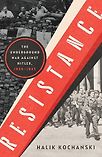
The World the Plague Made: The Black Death and the Rise of Europe by James Belich

Portable Magic: A History of Books and Their Readers by Emma Smith
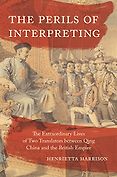
The Perils of Interpreting: The Extraordinary Lives of Two Translators between Qing China and the British Empire by Henrietta Harrison
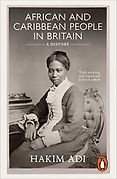
African and Caribbean People in Britain: A History by Hakim Adi
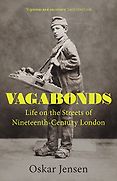
Vagabonds by Oskar Jensen
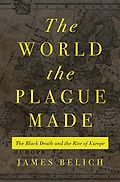
1 The World the Plague Made: The Black Death and the Rise of Europe by James Belich
2 resistance: the underground war in europe, 1939-1945 by halik kochanski, 3 portable magic: a history of books and their readers by emma smith, 4 the perils of interpreting: the extraordinary lives of two translators between qing china and the british empire by henrietta harrison, 5 african and caribbean people in britain: a history by hakim adi, 6 vagabonds by oskar jensen.
B efore we get to the books, can you tell me a bit about the criteria for the Wolfson History Prize in general? What kind of books were you and the other judges looking for?
Let’s start with the most global book on the list. The World the Plague Made by James Belich is about the economic impact of the Black Death. He says in the book that where the plague struck in the mid-14th century it probably killed as much as 50 percent of the population. Will you tell me a bit about the book and why it’s on the shortlist?
This is a wonderfully ambitious book. It’s meticulously researched, which is one of the criteria for the prize. It’s also very well written, which often isn’t the case when you’re dealing with subjects like this, which are quite technical and where some of the material is quite dry. Jamie Belich has done a phenomenal amount of research and written it out in a very engaging way—or as engaging as one can be when one is talking about the Black Death.
Is he an economic historian?
No, he’s a Professor of Imperial and Global history—that’s the chair he holds here at the University of Oxford. But I think it’s in the nature of that kind of research that you have to have a good command of economic material and economic data. That is one of the other things that attracted our attention. Although it is very much centred on economic history, it’s also a book about the plague, and he discusses it at some considerable length. The book’s capacity to draw on different disciplines is something that we thought was very impressive.
Then there’s the grand sweep. With history books, sometimes you say they’re ambitious when they cover fifty or a hundred years. This is a book that starts in 1346 and makes an argument about the impact on the globe that stretches right into and up to the Industrial Revolution and beyond. This really is grand history, in the good old-fashioned sense of the term.
What he’s focusing on, in my understanding, is the Great Divergence , and finding an explanatory factor for why Europe drew ahead of Asia in the early modern period. As he says in the introduction, he’s testing out a new answer “to an old two-word question: Why Europe?”
Yes, and the reason why this is important in a wider sense is that one of the things that global history has tried to do, since its emergence, is to move away from the obsession with Europe and the idea that everything that has been important and significant in the world has been important and significant because it happened in Europe or has come from Europe.
One of the striking things about this book is that, in talking about the Great Divergence, he acknowledges that part of Europe does end up pulling ahead. But it’s not just Europe. There’s also what he calls the Muslim South—the Middle East and North Africa—and they are part of this movement too. And it’s not for any institutional or cultural reason, but simply by the arbitrary fact that those were also the places where the plague struck very hard.
To put it starkly, the argument of the book is that wherever the plague hit, these are the parts of the world that eventually benefited and prospered, and those places where the plague didn’t strike—India and China—ended up falling behind. He’s saying this is not about culture, this is not about institutions, this is not about religion—it’s the plague.
Do you think it’s a convincing argument?
He’s laid out the argument in as convincing a way as he can. If you push him—and there are places in the book where he acknowledges it—he accepts that the plague is not the only factor. What he’s really arguing, if one had to summarise it in a schematic way, is that while all these other variables mattered, the plague is the only thing that is common across the board, and therefore, the plague is the most significant factor.
“You want a set of books that are going to broaden our intellectual and cultural horizons”
Let’s go on to the next book, which is also a long one. Resistance by Halik Kochanski is about World War II , which is often written about, but this book covers the resistance in every country that was occupied by an Axis power, so it’s about a lot of different places. I also liked that it opens with Czechoslovakia: I found it refreshing to start the story in a non-Western European country. Tell me why you liked it.
We liked it for the same reasons you did! It’s comprehensive, and that’s very important because a problem with history writing in general, but particularly with resistance, is that it tends to be written from a nation-centric point of view. Everybody wants to tell “their” story and how great they were or how terrible things were for them. That’s the framework through which most of these stories get told. Certainly, the Resistance memoir literature, which is vast, is almost all nation-centred.
But this was a pan-European movement and what she does really well is to identify first of all the commonalities. In all of these countries, when you look at underground resistance movements, similar things happened. They had clandestine literature, they collected intelligence, later on they started engaging in sabotage and armed conflict. All of this is happening at different moments and in different ways, but it is happening across Europe.
But looking at it across Europe gives you a sense that geography, too, matters. What happens in Eastern Europe is different from Western Europe. That’s the other big takeaway from the book. The Nazis, beyond a certain point in the East, simply regarded these territories as fodder. They wanted to enslave the local populations. It was an incredibly dumb strategy because one of its consequences was to render any kind of collaboration impossible. In Western Europe, the regime was different. They didn’t treat these countries in the same manner. They were brutal but not genocidal. That difference also has an impact on the kinds of resistance movements which emerged in different parts of Europe.
It’s also the remarkable feat of reading all this material in so many different languages. The book is an extraordinary achievement in that respect.
Speaking personally, I think it’s also a topical book because we’re talking about resistance at the moment. This is a book that helps us think about some of the obvious issues and also some of the awkward ones. We need to think carefully, because some of the organisations that in recent times we’ve called terrorists go on to become seen as freedom fighters. That was what was happening in Europe in the Second World War. The Nazis were calling all of these resistance organisations terrorists, and now we think of them differently.
Although it’s over 800 pages of quite dense print, I found it very readable. The writing is very accessible.
Should we talk about Portable Magic by Emma Smith now? This is a book about books and the title references the horror writer Stephen King, who in his memoir called books “a uniquely portable magic”, which I love. Why is this a Wolfson Prize-shortlisted book?
The history of books has now become, quite rightly, an important subject in its own right. Given the remit of the Wolfson Prize, books about books feature prominently in the line-up. The year that I was in contention, Richard Ovenden’s excellent work about the history of book burning was on the shortlist.
Emma Smith’s book brings a lot of pleasure. It’s very enjoyable. There are lots of juicy, tasty, and heart-warming anecdotes. We liked the way in which the stories are woven together. You’re moving around from the 12th century to the present. It’s not in a random way because there is an overall movement and sense of direction, and the sixteen chapters have particular themes to them.
You get a sense of the power of books. There’s power in a positive sense, but the Stephen King quotation is also about the potential for books to be, as Emma Smith says, sickening, disturbing and enraging. Books have that negative capacity, too. One of the chapters is about Mein Kampf . That chapter is topical because it’s all about freedom of expression, which is an important issue for us all at the moment.
This is a book that, in a very mild way, takes you to those big, important questions. I like the unassuming way in which she does that—not in a thumping-the-table, ‘this is what I think, therefore this is what we must all think’ way but opening issues up as questions to address. In fact, she doesn’t give answers. That’s what I like about her. She identifies the important things that we need to think about.
Let’s move on to Henrietta Harrison’s The Perils of Interpreting, which is about a key episode in Chinese history when, in 1793, the British envoy Lord Macartney was rebuffed by the Qianlong emperor. Tell me about this book, what it’s about, and why the judges liked it.
In a narrow sense, this is a twin biography. It’s about two translators who are actors in this big drama of the encounter between the British and Chinese empires in the late 18th and early 19th century—from the 1790s through to the Opium Wars in the late 1830s.
One of these two figures is George Staunton, who’s a child prodigy. He learns to speak Chinese when he’s very young and meets the emperor when he’s twelve years old. He must have been insufferable! He stays on in China and becomes an interpreter for the East India Company.
Then we have this remarkable character, Li Zibiao, who’s part of the Catholic tradition in China. A lot of people will discover the existence of this because there’s a general assumption that China in that period is completely inward-looking, and largely closed to the world. The fact that Li Zibiao goes to Naples, becomes a Catholic priest, and learns Latin doesn’t help his career. But at this particular moment, and in this encounter, he plays a very important role.
The slightly larger story Henrietta Harrison is telling is about the role of these two translators in mediating the encounter between these two powers that are trying to reach some kind of accommodation. It’s a wonderfully subtle book because when you look at the diplomatic history, the way in which this encounter is normally written about, it’s about clashes, about oppositions. It’s generally written in a binary way. What she’s trying to do is go beyond those oppositions and find, through these two people, the spaces where compromise and mutual understanding could be reached.
Translation is one critical way in which this could happen. She has wonderful examples. How you translate the Chinese word yi makes a huge difference: whether you’re calling the British ‘foreigners’ or ‘barbarians.’ You could translate it with either word. If you use one, it has one set of consequences; and if you do the other, it has a different set of consequences. That whole part of the book where she dwells on the skills that these interpreters bring to bear is fascinating.
In overall terms, the interpreters are not strong enough to be able to control the outcome, so, in the end, the two sides clash. But what the book implies—and she more or less says it—is that had they listened to their interpreters or taken them a bit more seriously, then the Opium Wars might not have happened in the way that they did.
When you study Chinese history, that meeting is such a caricature—the Qianlong emperor rejects the goods the British are offering as useless trinkets and that leads to the Opium Wars. But reading this book, it all comes to life. Lord Macartney spoke in Italian, which he’d learned in Italy, and then Li Zibiao translated from Italian into Chinese. All these details I found fascinating.
Also, one of the things that she digs out really impressively is the understanding that we now have of how badly this encounter went was created later on. It made me think of a more general point, which is that a lot of information we have about these landmark historical moments often come to us through understandings that we think are based on fact, but they aren’t at all. History is based on facts, but these facts are also social constructions.
The last two books on the shortlist are very much focused on Britain. The first one is African and Caribbean People in Britain: A History , by Hakim Adi. This one is really interesting. It’s mindblowing that DNA is making that early history, which you would think was completely lost, accessible. Tell me about the book and why you liked it.
This one is taking a subject that we thought we knew a little bit about and giving it the full treatment. The classic work on this subject was written by Peter Fryer in the 1980s. It was called Staying Power , and it was a very good book. It was the first book that tried to tell the story of Black—Adi prefers to say African and Caribbean—people in Britain.
Since then, a lot more material has emerged, and Adi brings all of this new material together and also gives this panoptic view of the—I’ll say Black, just for shorthand—presence in the British Isles. It’s 10,000 years from Cheddar Man to Black Lives Matter. It’s remarkable. You see Black people here in Roman times: the Black emperor, and the Black legionaries. You see African explorers alongside Francis Drake. You see Black people here in Tudor times.
This is all pre-slavery. The Black presence before slavery is one of the many huge contributions of this book.
Adi is a specialist of Pan-Africanism and he also has fascinating things to say about that story in the 20th century and the numerous contributions that Black people have made to British institutions like the NHS.
It’s a book that is sweeping and comprehensive and, quite apart from anything else, destroys the myth, insofar as it needed to be destroyed, of white Britain—the idea that there was a point back in time when these islands were inhabited only by white people. You just can’t hold onto that view anymore, once you’ve read this book.
He opens with a dispute in the Daily Mail . It isn’t just history, it’s very much alive as a topic.
Absolutely, and he has some really good and important things to say—even though it isn’t his subject—about race. You can’t write a book like this without talking about the history of racism in Britain. He shows two things. One is that racism—you’d be surprised if it wasn’t there—turns out to have been there from the time of slavery onwards. He connects it very much to the institution of slavery. He also shows, very effectively, that racism and beliefs in racial inequality were always part of the argument used by the powerful and those elites who depended on enslavement for their success.
Support Five Books
Five Books interviews are expensive to produce. If you're enjoying this interview, please support us by donating a small amount .
Lastly, let’s move on to Vagabonds: Life on the Streets of Nineteenth-Century London, by Oskar Jensen. Tell me what it’s about and why it’s so interesting.
What’s original about this book is that it tells us the story of Victorian London from 1780 to about 1870, but not through the voices of the people that we normally know or are familiar with, like Charles Dickens . What Jensen is trying to do in this book—and I think he pulls it off really effectively—is to do it from street level.
He tries to recapture the first-hand accounts of the beggars, the thieves, the musicians, the sex workers, the porters. There are all these occupations I didn’t even know about – road-crossing sweeper, for example; we encounter one of them, Margaret Cochrane, in the book. Unfortunately, because the material isn’t there to allow for a sustained engagement with them, you get only glimpses, but because he’s holding on to this one theme, you get a clear picture, over the aggregate of the book, of what life was like for people who were living in these precarious circumstances, like Mahomet Abraham, the blind sailor from Calcutta who begs on the streets with his dog.
What is very impressive and touching is that this is a world full of poverty, violence and arbitrariness, but people do extraordinary things as well. That’s what’s so great about this book: you see all the sides. You see what a struggle it is just to eke out an existence. Sometimes, life in the Victorian era is sugar-coated. Until recently, people were talking about Victorian values as if it was a great thing to go back to that time. This dispels that myth, but it also isn’t a book that simply looks at poor people as victims. It shows that they are capable—under certain, very limited circumstances—of doing something wonderful with their lives, even if it’s just for a fleeting instance.
What sources does he use to reconstruct those lives?
You have to jump around. There are a lot of Old Bailey trial records because, for a lot of these people, the only moments when their voices end up being heard is when they break the law. That is problematic as well, because what they’re saying isn’t necessarily what they would say if they were being interviewed. But you have to take what you’ve got.
I’m working on a book about the resistance of the slaves and there it’s the same problem. They didn’t write books. They were, for the most part, illiterate people. The few times when they appear in the records is when they carry out an insurrection, they get arrested, and then they’re interviewed before they go on trial. But what they say there doesn’t necessarily reflect what they would say in other circumstances.
The book draws from a wide range of sources, including also personal diaries and newspaper articles; this gives the text a real sense of immediacy, which is reinforced by his use of the present tense—a very effective narrative technique. Oskar Jensen has done a really comprehensive trawl of all the available material and come up with an impressive and evocative set of stories.
November 12, 2023
Five Books aims to keep its book recommendations and interviews up to date. If you are the interviewee and would like to update your choice of books (or even just what you say about them) please email us at [email protected]
Sudhir Hazareesingh
Sudhir Hazareesingh was born in Mauritius. He has been a Fellow and Tutor in Politics at Balliol College, Oxford, since 1990. He has written extensively about French intellectual and cultural history; among his books are The Legend of Napoleon , In the Shadow of the General and How the French Think . He won the Prix du Mémorial d’Ajaccio and the Prix de la Fondation Napoléon for the first of these, a Prix d’Histoire du Sénat for the second, and the Grand Prix du Livre d’Idées for the third. He won the Wolfson History Prize in 2021 for Black Spartacus: The Epic life of Toussaint Louverture.
We ask experts to recommend the five best books in their subject and explain their selection in an interview.
This site has an archive of more than one thousand seven hundred interviews, or eight thousand book recommendations. We publish at least two new interviews per week.
Five Books participates in the Amazon Associate program and earns money from qualifying purchases.
© Five Books 2024

| Moscow International Tool Expo | |
| Dates: Tuesday, November 7, 2023 - Friday, November 10, 2023 | |
| Venue: Expocentre Fairgrounds, , | |
| | | | |
| MITEX is one of the biggest tools exhibitions in Russia with hundreds of participants every year. MITEX is the meeting point of producers, distributors and consumers of tools. At the exhibition are presented world and Russian leading companies for tools, hand tools, abrasives, fittings, diesel and electrical generators, professional cleaning and thermal equipment, snow blowers. Every year big companies like Interskol, BOSCH, Black&Decker, TTI, Global Garden Products, Sparky, LIT Trading, Husqvarna, Metabo, Enkor, Vneshtechcontract, Kaercher and many other take part in the exhibition. | |
| Website: | |
| | ||||
| 14 Krasnopresnenskaya naberezhnaya, Moscow Tel: +7-499-795 3799 | |||
IMAGES
COMMENTS
Perhaps this year's most expansive book, The Wager crosses rigorous research with true-crime verve, peppered with elements of survival tale, legal thriller, and horror story. The 2023 Goodreads Choice Awards have two rounds of voting open to all registered Goodreads members. Winners will be announced December 07, 2023.
Einstein in Time and Space by Samuel Graydon (Scribner, November 14) Overlooked: A Celebration of Remarkable, Underappreciated People Who Broke the Rules and Changed the World by Amisha Padnani (Penguin Random House, November 14). Without further ado, here are the best biographies of 2023 so far!
From a biography of Martin Luther King Jr. to the story of a deadly shipwreck, these are some of Smithsonian magazine's favorite history books of 2023. The Wager: A Tale of Shipwreck, Mutiny and ...
Talented biographers examine the interplay between individual qualities and greater social forces, explains Elizabeth Taylor—chair of the judges for the 2023 National Book Critics Circle award for biography.Here, she offers us an overview of their five-book shortlist, including a garlanded account of the life of J. Edgar Hoover and a group biography of post-war female philosophers.
by Robert "Mack" McCormick ; edited by John W. Troutman. A worthwhile investigation into a true legend of the blues. FULL REVIEW >. get a copy. bookshelf. MAY 2, 2023. NONFICTION. WINNIE AND NELSON. by Jonny Steinberg.
Booklovers everywhere will love our lineup of best biographies and memoirs of 2023. From personal narratives of empowerment and self-realization such as Kerry Washington's Thicker than Water to biographies and memoirs of the great artists of our time such as Barbra Streisand's My Name is Barbra, these are the best biographies and memoirs of the year 2023.
2023 was a huge year for new biographies. With newly published works from some of the most well-known biographers, and some not-so-well-known biographers finding their way onto our curated list of 10 Best Biographies Released in 2023. This page contains affiliate links. If you make a purchase using links on this page, we may earn a commission.
10+ in stock. Usually dispatched within 2-3 working days. In the most eagerly-awaited memoir of 2023, Prince Harry tells his version of the story about the tragic death of his mother Princess Diana, life within the Royal Family and his marriage to Meghan, Duchess of Sussex, with remarkable candour and directness.
The Best Biographies of 2023: The National Book Critics Circle Shortlist. Elizabeth Taylor, Biographer. Buy now. Mr. B: George Balanchine's Twentieth Century by Jennifer Homans. Read expert recommendations ... 🏆 Winner of the 2023 Elizabeth Longford Prize for Historical Biography.
The best biographies of 2023, from Burton and Taylor to Mrs Orwell ... He never painted a naked figure, a religious scene or historical narrative, focusing instead on the medium itself. He created ...
Others elevate straightforward narratives by incorporating political theory, philosophy, and history. The authors of each understand that one's life — and more significantly, one's self ...
Mathew Parker's Goldeneye does the same for Bond author Ian Fleming - and in doing so, both books enlarge considerably on the biography's core subject. READ NEXT: Best reading lights to brighten up your page. The best biographies to read in 2023 1. Let's Do It: The Authorised Biography of Victoria Wood by Jasper Rees: Best showbiz biography
New Releases in Historical Biographies. #1. The Demon of Unrest: A Saga of Hubris, Heartbreak, and Heroism at the Dawn of the Civil War. Erik Larson. 3,733. Audible Audiobook. 1 offer from $21.66. #2. An Unfinished Love Story: A Personal History of the 1960s.
Peter Brown is Philip and Beulah Rollins Professor of History, Emeritus at Princeton University and author of Journeys of the Mind: A Life in History (Princeton, 2023). Meticulously researched and written with flair, Ekaterina Pravilova's The Ruble: A Political History (Oxford) is the story of how monetary policy, seemingly the most impersonal of forces, resonated throughout an immense and ...
avg rating 3.67 — 9,743 ratings — published 2021. Want to Read. Rate this book. 1 of 5 stars 2 of 5 stars 3 of 5 stars 4 of 5 stars 5 of 5 stars. Books shelved as 2023-biographies: Miss Dior: A Story of Courage and Couture by Justine Picardie, Between Two Kingdoms: A Memoir of a Life Interrupted by...
1. Begin Again: James Baldwin's America and Its Urgent Lessons for Our Own by Eddie S. Glaude (2020) Read More. Shop Now. 2. The Mayor of Castro Street: The Life and Times of Harvey Milk by ...
Seventeen is a shocking and eye-opening memoir, written by Joe Gibson. In this revealing book, we're whisked back to 1992. Like every other seventeen-year-old boy, Joe has one eye on his studies, the other on his social life. He's looking ahead to a gap year full of travel and adventure before university.
The Wolfson History Prize is the UK's most prestigious history book prize. The judges, all professional historians, pick out books that combine excellence in research with readability. Oxford University historian Sudhir Hazareesingh, one of the Wolfson judges and author of Black Spartacus, talks us through the six terrific books that made the 2023 shortlist, from the Black Death and its ...
The Best Books of 2023: History Posted on 18th October 2023 by Mark Skinner. The best history books of 2023 have brought the past to vibrant life, whether they've been deep dives into ... Once more blending history and biography to luminous effect, the author of the former Waterstones Non-Fiction Book of the Month 1913 delivers an absorbing ...
The White House, official residence of the president of the United States, in July 2008. The president of the United States is the head of state and head of government of the United States, [1] indirectly elected to a four-year term via the Electoral College. [2] The officeholder leads the executive branch of the federal government and is the commander-in-chief of the United States Armed ...
In the early hours of November 13, 2022, four University of Idaho students were fatally stabbed in an off-campus residence in Moscow, Idaho. [ 1] On December 30, 28-year-old Bryan Christopher Kohberger was arrested in Monroe County, Pennsylvania, on four counts of first-degree murder and one count of felony burglary. [ 2]
Kirill with Mishustin, Volodin, Medvedev and other prominent figures during Putin's Presidential Address to the Federal Assembly on 21 February 2023. Cardinal Kurt Koch, president of the Pontifical Council for Promoting Christian Unity, said that the patriarch's legitimization of the "brutal and absurd war" is "a heresy." [141]
MITEX-2023 is held in Moscow, Russia, from 11/7/2023 to 11/7/2023 in Expocentre Fairgrounds. Industry News Search Event, Venue or Orgnizer Trade Shows Home > Hardware & Tools Fairs > MITEX-2023: MITEX-2023: MITEX-2023: Closed Moscow International Tool Expo: Dates: Tuesday, November 7, 2023 - Friday, November 10, 2023 ...
On 23 June 2023, the Wagner Group, a Russian private military company, engaged in a major uprising against the Government of Russia.It marked the climax of the Wagner Group-Ministry of Defense conflict, which had begun about six months earlier.Russian oligarch Yevgeny Prigozhin, who had been leading Wagner Group activities in Ukraine, stood down after reaching an agreement a day later.